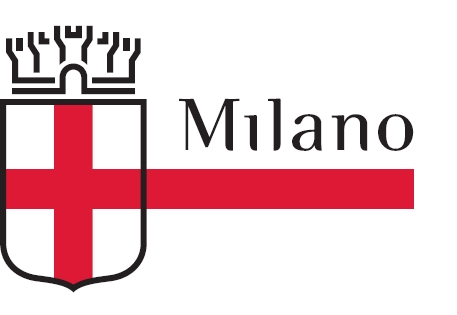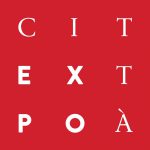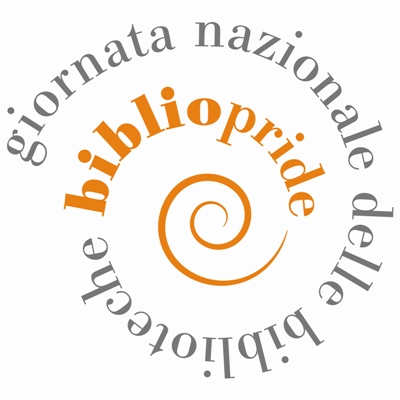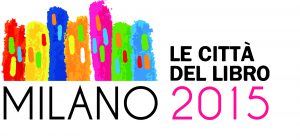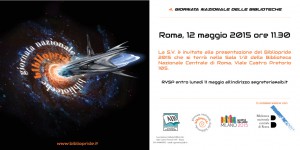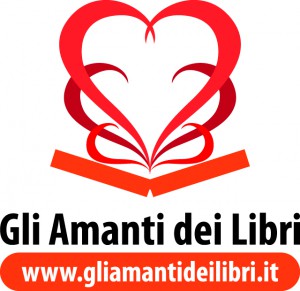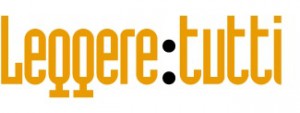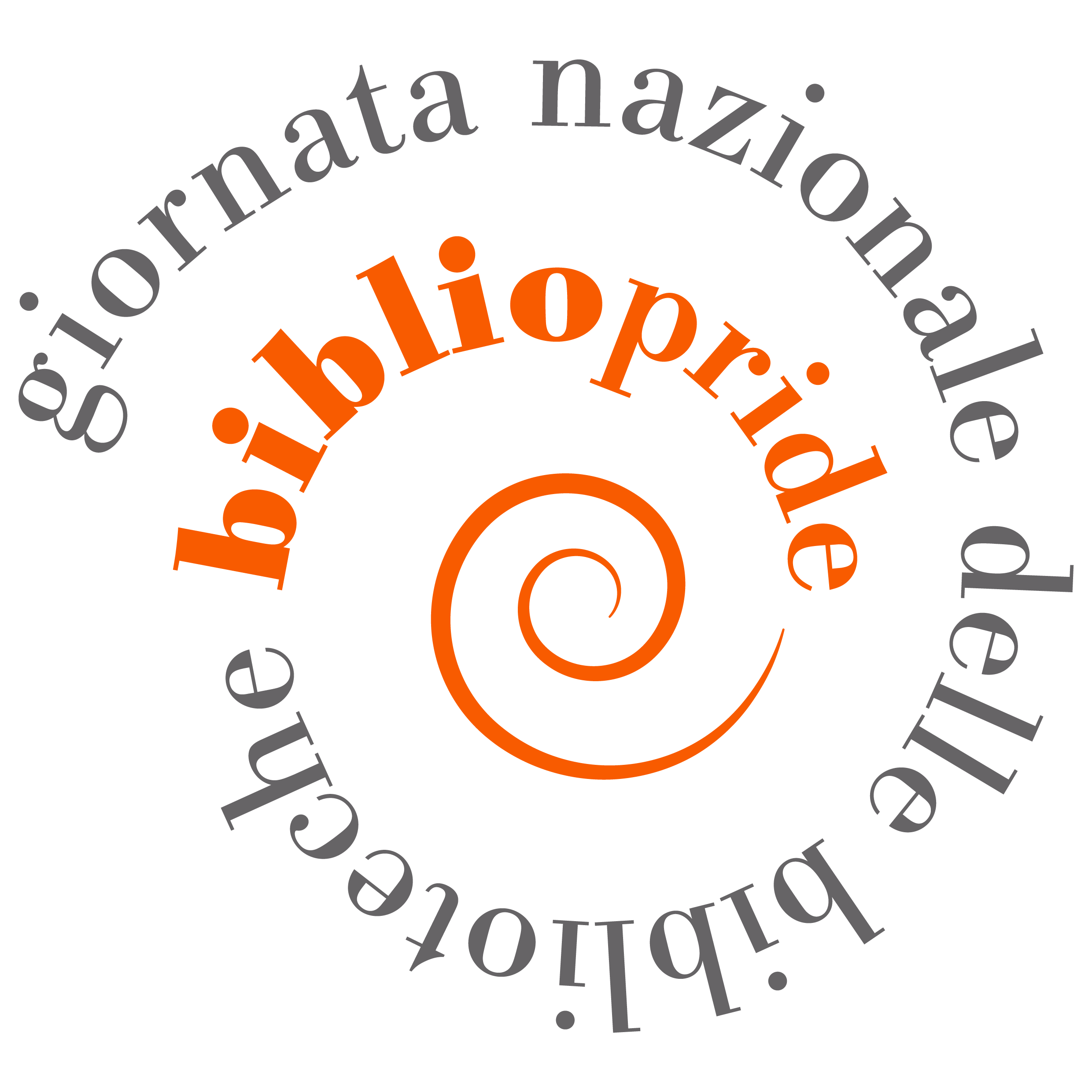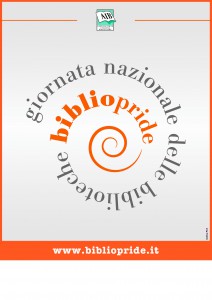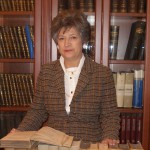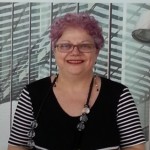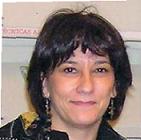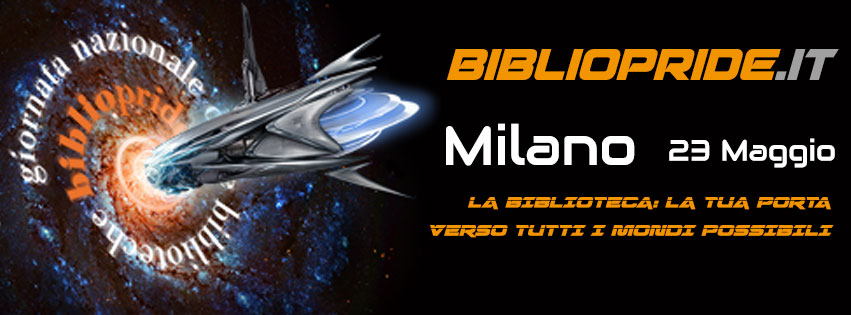
In questa pagina confluiranno tutte le iniziative rientranti nel programma del Bibliopride – Giornata nazionale delle biblioteche, che si svolgeranno in tutta Italia nel periodo dal 24 aprile al 6 giugno.
Bibliopride 2015
24/03/2015 , lunedì-venerdì 10.00-18.00; sabato 10.00-13.00 – Bruno Barilli. Scrittore artista funambolo
Roma (Roma)
Mostra sull’intellettuale, musicista e critico musicale, tra i fondatori della «Ronda», Bruno Barilli (Fano 1880 – Roma 1952), che ha attraversato momenti storici e stagioni letterarie importanti del Novecento italiano. È stato uno dei maggiori protagonisti della vita culturale dell’Italia tra le due guerre e un vero e proprio bohémien della scrittura, dalla prosa d’arte alla letteratura musicale e di viaggio, dalla critica cinematografica alle corrispondenze di guerra.
Organizzato da: Biblioteca Nazionale Centrale
In collaborazione con: l’Università “G. d’Annunzio” di Chieti-Pescara, l’Archivio storico del Teatro dell’Opera di Roma, l’Archivio del Novecento dell’Università “La Sapienza”, il Dipartimento di Scienze Umanistiche e della Comunicazione dell’Università della Tuscia e l’Associazione degli Amici di Villa Strohl Fern
Biblioteca Nazionale centrale di Roma, Viale Castro Pretorio, 105, Roma (Roma).
Info: 064989352 – bnc-rm.ufficiostampa@beniculturali.it
http://www.bncrm.librari.beniculturali.it/
https://it-it.facebook.com/bncrm
https://twitter.com/bnc_roma
04/06/2015, 18:00 – Incontro con l’autrice Maria Maddalena Sposito.
Organizzato da
Biblioteca comunale “Grazia Deledda” – Santa Teresa Gallura
Santa Teresa Gallura (Olbia-Tempio)
Incontro con l’autrice ed illustratrice Maria Maddalena Sposito.
Ore 18:00 – Letture di fiabe tratte dai volumetti “I grilli e le cicale” e “La farfalla e la libellula”.
Ore 19:00 – Presentazione del romanzo “Baronia in giallo”.
Organizzato da:
In collaborazione con: Collaborazione con l’associazione “Gli amici di Lucia” di Santa Teresa Gallura
Sala Conferenze – Biblioteca comunale “Grazia Deledda”, Via del Porto n° 47, Santa Teresa Gallura (Olbia-Tempio).
Info: 0789.741317 – bibliostg@tiscali.it
http://www.comunesantateresagallura.it
16/04/2015, 18:00 – Evento « I CARE » Tante storie per crescere
Pomigliano d’Arco (Napoli)
– La Psicologia dell’età evolutiva
– La Letteratura tra Pedagogia e Vita
– Il Sistema Bibliotecario Regionale
– FRAMMENTI DI STORIA della “I CARE”
– La Biblioteca del Futuro
– La Biblioteca dei Ragazzi tra Lettura e Socialità
Organizzato da: CENTRO ” Giorgio LA PIRA “, Servizio Educativo e Culturale ONLUS, Biblioteca dei Ragazzi « I CARE » Dottor Domenico De Cicco
In collaborazione con:
CENTRO ” Giorgio LA PIRA “, Servizio Educativo e Culturale ONLUS, Biblioteca dei Ragazzi « I CARE » , Via F. Terracciano, 240, Pomigliano d’Arco (Napoli).
Info: Tel 339 7552580 – lapira.pomigliano@libero.it
http://www.centrolapirapomigliano.it/
https://www.facebook.com/pages/Centro-Giorgio-La-Pira-Pomigliano-dArco/243768279076137?fref=ts
24/04/2015, 14.00 – Libri e lettori. Presente e futuro della lettura in Italia
Torino (Torino)
Seminario organizzato da Associazione Forum del libro, in collaborazione con Unito, Polito, Biblioteche Civiche, AIB.
Organizzato da:
In collaborazione con:
sala Principi D’Acaja del Palazzo del Rettorato , via Po, 17 e via Verdi, 8, Torino (Torino).
Info: –
24/04/2015, orario biblioteca – Porta un amico in biblioteca
Massa Marittima (Grosseto)
ogni utente che porterà un amico a fare la tessera in biblioteca riceverà un libro in omaggio.
Organizzato da:
In collaborazione con:
Biblioteca comunale Gaetano Badii di Massa Marittima, Piazza XXIV Maggio, 10, Massa Marittima (Grosseto).
Info: 0566.906290 – biblioteca@comune.massamarittima.gr.it
29/04/2015, 18:00 – Possa il mio sangue servire: incontro con Aldo Cazzullo
Cuneo (Cuneo)
Nel settantesimo della Liberazione scrittorincittà propone un incontro con Aldo Cazzullo, inviato ed editorialista del Corriere della Sera.
Con Possa il mio sangue servire (Rizzoli), l’autore ci conduce al cuore della Resistenza raccontando quella dei partigiani – compresi cattolici e monarchici – e dei militari, dei carabinieri, delle suore, degli ebrei, degli alpini, degli internati in Germania, dei civili: tutti coloro che dissero no a nazisti e fascisti.
Ingresso libero.
Organizzato da: Comune di Cuneo – Scrittorincittà
In collaborazione con: Biblioteca civica di Cuneo
CDT, Centro di Documentazione Territoriale (sala polivalente), largo Barale 11, Cuneo (Cuneo).
Info: 0171444822 – info@scrittorincitta.it
http://www.scrittorincitta.it
https://www.facebook.com/scrittorincitta
https://twitter.com/scrittorincitta
30/04/2015, 9.00 – Il passato dell’Expo. L’Esposizione internazionale di Torino del 1911 nei fondi archivistici e librari della Fondazione Luigi Einaudi
Torino (Torino)
Esposizione di libri, immagini, e documenti dell’Archivio e della Biblioteca della Fondazione Luigi Einaudi relativi all’Esposizione internazionale delle industrie e del lavoro avvenuta a Torino nel 1911.
Organizzato da:
In collaborazione con:
Fondazione Luigi Einaudi onlus, via Principe Amedeo, 34, Torino (Torino).
Info: +39 011 835656 – biblioteca@fondazioneeinaudi.it
http://www.fondazioneeinaudi.it
https://www.facebook.com/FondazioneLuigiEinaudi
06/05/2015, 20.45 – L’autore all’Ariston – Ketty Caraffa presenta il suo ultimo libro
Lainate (Milano)
Ketty Caraffa presenta “LE DONNE, ACQUA NEL DESERTO”.
Il racconto diretto di Storie, i contributi sui temi dell’informazione, musica, sport e comunicazione al femminile. Donne che si raccontano.
L’autrice parlerà di tutti i temi del suo ultimo libro in un incontro, libero e gratuito, organizzato in occasione delle aperure serali dall’Ariston.
Organizzato da:
In collaborazione con:
l’Ariston – Lainate Urban Center, L.go Vittorio Veneto, 17/21, Lainate (Milano).
Info: 02 93598208 – biblioteca.lainate@csbno.net
04/05/2015, 10:00 – Progetto AIB/GLAM campania
Fisciano (Salerno)
Riunione dei partecipanti al progetto Aib campania GLAM Wikipedia
Organizzato da: AIB
In collaborazione con:
Centro Bibliotecario di Ateneo – Università degli studi di Salerno, via Papa Giovanni Paolo II, Fisciano (Salerno).
Info: 089966478 – mrcalifano@unisa.it
http://www.biblioteche.unisa.it/
https://www.facebook.com/pages/Biblioteca-dell-Universit%C3%A0-di-Salerno/16413059766?ref=br_rs
05/05/2015, 9.00 – Querele intimidatorie
Roma (Roma)
Il convegno affronterà i riflessi che l’attuale normativa sulla difesa della reputazione personale ha sulla produzione libraria. Il seminario si svolgerà all’interno del corso di formazione promosso da Ossigeno dal titolo “Querele intimidatorie” per il quale sono previsti altri sei crediti formativi (due dei quali deontologici) ai giornalisti che si iscrivono sulla piattaforma Sigef.
Organizzato da: OSSIGENO PER L’INFORMAZIONE
In collaborazione con:
Biblioteca Nazionale Centrale , Viale castro Pretorio, 105, Roma (Roma).
Info: 094989352 – bnc-rm.ufficiostampa@beniculturali.it
http://www.bncrm.librari.beniculturali.it
https://www.facebook.com/bncrm
https://twitter.com/bnc_roma
06/05/2015, 16:00 – STOrie CON TE l’emozione vien leggendo
Teramo (Teramo)
Letture ad alta voce per bambini/e 18 mesi-3 anni e genitori
Organizzato da: Associazione Culturale Onde Libere
In collaborazione con: AIB – ACP – Centro per la salute del bambino – NPL Abruzzo
Nido Pinocchio, via Matteotti, Teramo (Teramo).
Info: 3494284340 – clementinachiavatti@gmail.com
06/05/2015, 15,30 – Incontro con gli operatori NPL-Liguria nel territorio provinciale della Spezia
La Spezia (La Spezia)
Incontro con gli operatori NPL-Liguria nel territorio provinciale della Spezia.
Organizzato da:
In collaborazione con:
Biblioteca Civica “Beghi” della Spezia – Auditorium, Trasversale Via Del Popolo 61 19126 La Spezia, La Spezia (La Spezia).
Info: –
https://www.aib.it/attivita/2015/49496-nati-per-leggere-liguria-levante/
06/05/2015, 17:00 – Incontro-conferenza per il progetto di promozione alla lettura “Il libro, cibo sano per la mente”
Genova (Genova)
Promosso dall’Associazione SOTTOSOPRA ADPS e Patrocinato dal Municipio IV Media Val Bisagno
Per capire e comprendere tutti gli aspetti dell’importanza che rivestono i libri nello sviluppo dei nostri bambini.
Rivolto ai genitori, insegnanti ed educatori.
Organizzato da:
In collaborazione con:
l’Aula del Consiglio Municipio IV Media Val Bisagno, P.zza dell’Olmo, 3, Genova (Genova).
Info: –
07/05/2015, 17:00 – Laboriamo le Storie: Auguri Mamme!
Cormano (Milano)
Lettura ad alta voce con laboratorio creativo in occasione della Festa della mamma per bambini da 3 ad 8 anni accompagnati da un adulto.
Ingresso gratuito con prenotazione obbligatoria.
Organizzato da:
In collaborazione con:
Biblioteca Civica dei Ragazzi, Via G. Rodari n. 3, Cormano (Milano).
Info: 0266304145 – biblioteca.cormanoragazzi@csbno.net
09/05/2015, 9.30 – Corbetta BiblioDay
Corbetta (Milano)
Si tratta di un’iniziativa di promozione del libro e della lettura, organizzata dalla Biblioteca Comunale di Corbetta, con il patrocinio della Fondazione Per Leggere – Biblioteche del Sud Ovest Milano, che prevede una giornata di incontri, attività didattiche, creative e ludiche, rivolte a tutte le fasce di pubblico, dai più piccoli, ai bambini, ragazzi e adolescenti fino agli adulti.
Organizzato da: Comune di Corbetta – Biblioteca Comunale
In collaborazione con: Fondazione per Leggere – Biblioteche del Sud Ovest Milano
Biblioteca Comunale Corbetta, Piazza XXV Aprile, 10, Corbetta (Milano).
Info: 024543152 – servizio.biblioteca@comune.corbetta.mi.it
http://www.bibliocorbetta.it
https://www.facebook.com/pages/Biblioteca-Comunale-Corbetta/155588267882780?sk=wall
https://twitter.com/bibliocorbetta
09/05/2015, 9:00 – Libri vivi per bambini veri: seminario del progetto Nati per Leggere
Cuneo (Cuneo)
Seminario per genitori, educatori, personale sanitario, bibliotecari con la pedagogista Francesca Romana Grasso. Partecipazione gratuita con iscrizione obbligatoria presso la biblioteca (0171 444.641) 15 giorni prima della data
Organizzato da: Comune di Cuneo – Biblioteca dei Bambini e dei Ragazzi
In collaborazione con:
Biblioteca dei Bambini e dei Ragazzi di Cuneo, via Cacciatori delle Alpi 4, Cuneo (Cuneo).
Info: 0171.444641 – biblioteca@comune.cuneo.it
http://www.comune.cuneo.gov.it/cultura/biblioteca-ragazzi.html
https://www.facebook.com/pages/biblioteca-dei-bambini-e-dei-ragazzi/61968496006
11/05/2015, 20.45 – Incontro autogestito del gruppo di lettura
Lainate (Milano)
Il gruppo di lettura propone straordinariamente un gruppo autogestito. Il libro della serata sarà “SOTTOMISSIONE” di Michel Houellebecq.
A Parigi, in un indeterminato ma prossimo futuro, vive François, studioso rimasto ormai senza alcun entusiasmo verso l’insegnamento. La sua vita procede diligente e tranquilla, ma qualcosa sta cambiando …
Organizzato da:
In collaborazione con:
l’Ariston – Lainate Urban Center, L.go Vittorio Veneto 17/21, Lainate (Milano).
Info: 02 93598208 – biblioteca.lainate@csbno.net
11/05/2015, 16:00 – Inaugurazione sportello “Nati per leggere” a Genova
Genova (Genova)
Lunedì 11 maggio 2015 alle ore 16,00 Genova, presso la Biblioteca “De Amicis”, Magazzini dell’Abbondanza, inaugurazione dello sportello “Nati per leggere”.
Nell’occasione dalle ore 16,30 assaggi e spunti di lettura per genitori e insegnanti dai libri prima infanzia
Selezione ANDERSEN 2015, aspettando il premio con i libri e gli autori in città (20/23 maggio)
a cura di “ANDERSEN – la rivista e il premio dei libri per ragazzi”
Organizzato da:
In collaborazione con:
Biblioteca “De Amicis “ , Porto Antico Magazzini del Cotone 1° Modulo 2° piano , Genova (Genova).
Info: –
https://www.aib.it/attivita/2015/49715-sportello-nati-per-legere-genova/
18/05/2015, 10:30 – Un nuovo ruolo sociale per le biblioteche pubbliche
Torino (Torino)
Intervengono: Enrica Manenti (Presidente nazionale AIB), Enzo Borio (Presidente AIB Piemonte), Claudia Dalla Zotta (Presidente AIB Trentino Alto Adige), Francesco Caligaris (Animazione Sociale), Eugenio Pintore (Dirigente settore biblioteche Regione Piemonte)
Organizzato da: AIB
In collaborazione con:
Salone del Libro, Lingotto Fiere, Via Nizza 280, Torino (Torino).
Info: –
https://www.aib.it/struttura/sezioni/piemonte/2015/49431-salone-del-libro-torino-14-18-maggio-2015/
30/05/2015, 10:30 – Il mostro peloso (lettura animata)
Villa Cortese (Milano)
Un allegro e colorato racconto per i bambini da 5 a 10 anni, tratto dal libro IL MOSTRO PELOSO di H. Bichonnier, a cura di RadiceTimbricaTeatro. Ingresso Libero. Al termine premiazione del CONCORSO SUPERLETTORE 2015.
Organizzato da: Biblioteca Comunale di Villa Cortese
In collaborazione con:
Sala Consiliare, Piazza del Carroccio 15, Villa Cortese (Milano).
Info: 0331434455 – biblioteca@comune.villacortese.mi.it
http://www.comune.villacortese.mi.it
13/05/2015, 20.45 – L’autore all’Ariston – Marco Signò presenta il suo ultimo libro
Lainate (Milano)
Marco Signò presenta “2057”, Acar Edizioni.
Ambientato in un prossimo futuro, 2057 narra l’amicizia di Lucas e Marcèlo. Quest’ultimo torna dopo 15 anni di assenza vissuti in Polinesia e rimane stordito per i ritmi di vita alienanti e pressanti che la società impone …
Durante la presentazione Flavia Ajolfi e Gabriella Casaro leggeranno alcuni estatti del libro.
Incontro libero e gratuito, aperto a tutti.
Organizzato da:
In collaborazione con:
l’Ariston – Lainate Urban Center, L.go Vittorio Veneto, 17/21, Lainate (Milano).
Info: 02 93598208 – biblioteca.lainate@csbno.net
14/05/2015, 18:00 – Incontro con l’autore
Rho (Milano)
Carla Maria Russo presenta il suo ultimo libro
Organizzato da:
In collaborazione con:
Biblioteca Comunale Villa Burba, Corso Europa 291, Rho (Milano).
Info: 02/93332215 – biblioteca.rhoburba@csbno.net
14/05/2015, 13:00 – Presentazione del Rapporto sulle biblioteche italiane 2013-2014, a cura di Vittorio Ponzani (Roma: Associazione italiana biblioteche 2015)
Torino (Torino)
Intervendgono: Maria Giangrande (Fondazione Fitzcarraldo), Enrico Pasini (Università di Torino), Vittorio Ponzani (Biblioteca dell’Istituto Superiore di Sanità), Giovanni Solimine (Università di Roma La Sapienza)
Modera: Enzo Borio (presidente AIB sez. Piemonte)
Organizzato da: AIB
In collaborazione con:
Salone del libro, Lingotto Fiere, via Nizza 280, Torino (Torino).
Info: –
https://www.aib.it/struttura/sezioni/piemonte/2015/49431-salone-del-libro-torino-14-18-maggio-2015/
14/05/2015, 17.00 – Ibridi & Simili. Mostra internazionale di libri d’artista e della piccola editoria
Salerno (Salerno)
La Mostra, a cura del maestro Antonio Baglivo e del giornalista Vito Pinto, si pone come una offerta culturale indirizzata a valorizzare e a meglio comprendere il libro come opera d’arte. Una sezione speciale è dedicata a quegli artisti e piccoli editori che in proprio, con costanza, producono libri minimi in tiratura limitatissima in un dialogo aperto con poeti e scrittori. Una pratica che, tra l’altro, negli anni ha visto impegnati alcuni tra gli artisti salernitani più significativi.
Organizzato da: Provincia di Salerno
In collaborazione con: Libroteca Ibridifogli. Archivio del libro d’artista
Biblioteca Provinciale di Salerno, Via Valerio Laspro, Salerno (Salerno).
Info: 089/250621 – biblioteca@provincia.salerno.it
http://88.53.116.135/bibliotecanew/
https://www.facebook.com/pages/Biblioteca-Provinciale-di-Salerno/688892777853198?ref=bookmarks
14/05/2015, 17:00 – I bambini nell’arte
Cormano (Milano)
Laboratorio speciale per scoprire insieme alcune opere d’arte.
Per bambini dai 3 ai 10 anni acompagnati da un adulto.
Ingresso libero e gratuito
Organizzato da:
In collaborazione con:
Biblioteca Civica dei Ragazzi, Via Rodari 3, Cormano (Milano).
Info: –
14/05/2015, 17.00 – Passioni del Novecento. Quartetto per masse e voce sola: Bianca Maria Frabotta con Giovanna Amato
Roma (Roma)
Incontro. Cosa leggeva una bambina degli anni cinquanta innamorata dei libri? Quali le tappe di una iniziazione romana alla parola fra i “teneri sofisti” di una casta letteraria prevalentemente al maschile, in un mondo sempre più indifferente alla poesia? Quali le reazioni impolitiche al crollo del comunismo, all’invasione dei fondamentalismi, alle quotidiane stragi nel mondo del lavoro? Un autoritratto, o quasi. Una sinfonietta sul mondo interiore di quell’Esule involontaria.
Organizzato da: Biblioteca Nazionale Centrale
In collaborazione con:
Biblioteca Nazionale Centrale , Viale castro Pretorio, 105, Roma (Roma).
Info: 064989352 – bnc-rm.ufficiostampa@beniculturali.it
http://www.bncrm.librari.beniculturali.it
https://www.facebook.com/bncrm
https://twitter.com/bnc_roma
15/05/2015, 18:30 – AL CENTRO DELLA MEDIATECA
Bari (Bari)
Processo partecipato per fare un bilancio di oltre due anni di attività, riscrivere la Carta dei Servizi, e immaginare la futura Mediateca, nel cuore della città capoluogo e proiettata nel Mediterraneo. Presentazione delle nuove collezioni e dei fondi documentali, scaffale di oltre 50 film sull’immaginario delle biblioteche nel cinema. Lettura ad alta voce dei racconti de Lo Cunto de li cunti che hanno ispirato il film in concorso di Matteo Garrone, e proiezione de Al Centro dell’Uragano (1956)
Organizzato da:
In collaborazione con:
Mediateca Regionale Pugliese, Via Giuseppe Zanardelli, 30, Bari (Bari).
Info: 0805405685 – mediateca@apuliafilmcommission.it
https://www.facebook.com/MediatecaRegionePuglia
https://twitter.com/MediatecaPuglia
15/05/2015, 16 – “Nati per leggere” Liguria (a Savona)
Savona (Savona)
Venerdì 15 maggio p.v. a Savona, presso la Biblioteca
civica Barrili alle ore 16, con la partecipazione di Donatella Curletto
(referente NpL Liguria AIB), di Graziella Petrozzi (Biblioteca Barrili
Savona) e di Daria Minuto (referente provinciale NpL Savona) si svolgerà il secondo di una serie di incontri NpL Liguria, itineranti nelle quattro province, dedicati alla conoscenza reciproca, allo scambio di informazioni e alla definizione di linee d’indirizzo condivise.
Organizzato da:
In collaborazione con:
Biblioteca civica Barrili, Via Monturbano, 14, Savona (Savona).
Info: –
https://www.aib.it/attivita/2015/49820-nati-per-leggere-liguria-a-savona/
16/05/2015, 9:30 – 1975-2015. la biblioteca compie 40 anni.
Cabiate (Como)
La biblioteca rimarrà aperta tutto il giorno con eventi per tutte la fasce di età, dalla scoperta dei dinosauri al viaggio nel mondo dei 5 sensi per il bambini,con spazi espositivi dedicati ai lavori eseguiti dai laboratori di arte decorativa e ai pizzi del corso a tombolo,per finire aperitivo in musica.
Organizzato da: assessorato alla cultura-biblioteca comunale “I Rho”
In collaborazione con:
biblioteca comunale ” Ida Rho” Cabiate, via Giotto, Cabiate (Como).
Info: 031 769325 – biblioteca@comune.cabiate.co.it
http://www.facebook.com/biblioteca.cabiate
16/05/2015, 10 – 18 – Lo scambialibro
Scandicci (Firenze)
La giornata dello SCAMBIALIBRO
nei giardini della Biblioteca di Scandicci è un appuntamento abituale per la cittadinanza.
Un libro ha tante vite quanti sono i suoi lettori.
L’iniziativa è rivolta a:
• chi ha dei libri che non vuole più tenere, ma che non vuol buttare;
• chi vuole prendere gratuitamente dei libri donati da altri;
• per chi vuole trovare uno spazio dove prendere e lasciare libri liberamente.
Organizzato da:
In collaborazione con:
Biblioteca, via Roma 38/A, Scandicci (Firenze).
Info: 055 7591860-861 – biblioteca@scandiccicultura.it
http://biblioteca.scandiccicultura.it
18/05/2015, 14:30 – L’azione culturale della biblioteca: percorsi e prospettive per il servizio bibliotecario pubblico
Torino (Torino)
(Presentazione del libro di Cecilia Cognigni)
Intervengono: Cecilia Cognigni (bibliotecaria), Enrica Manenti (Presidente nazionale AIB), Sandra Migliore (bibliotecaria di biblioteca accademica – CER AIB Piemonte), Loredana Pilati (bibliotecaria di biblioteca comunale – CER AIB Piemonte)
Organizzato da: AIB
In collaborazione con:
Salone del Libro, Lingotto Fiere, Via Nizza 280, Torino (Torino).
Info: –
https://www.aib.it/struttura/sezioni/piemonte/2015/49431-salone-del-libro-torino-14-18-maggio-2015/
18/05/2015, 15:30 – Biblioteche, libri per ragazzi e censure: come muoversi
Torino (Torino)
Intervengono: Ilda Curti (Assessore alle Pari Opportunità della Città di Torino), Francesco Langella (presidente AIB LIGURIA e Direttore Biblioteca De Amicis di Genova), Caterina Ramonda (bibliotecaria), Giordana Piccinini (Hamelin), Francesca Pardi (editrice), Anna Parola (libraia), Alessandra Quaglia (bibliotecaria – CER AIB Piemonte)
Modera Franco Fornaroli (bibliotecario Commissione Nazionale AIB Biblioteche e servizi per ragazzi)
Organizzato da: AIB
In collaborazione con:
Salone del Libro, Lingotto Fiere, Via Nizza 280, Torino (Torino).
Info: –
https://www.aib.it/struttura/sezioni/piemonte/2015/49431-salone-del-libro-torino-14-18-maggio-2015/
18/05/2015, 16:30 – Biblioteche accademiche aperte
Torino (Torino)
Intervengono: Annamaria Tammaro (IFLA – Section Library Theory, Coordinatrice Osservatorio Nazionale Formazione AIB), Maurizio Lana (Ricercatore presso l’Università del Piemonte Orientale, ADHO), Paolo Sirito (Biblioteca dell’Università Cattolica del Sacro Cuore di Milano), Maurizio Vivarelli (Professore di bibliografia e biblioteconomia presso l’Università degli Studi di Torino).
Modera: Maria Cassella (CER AIB Piemonte)
Organizzato da: AIB
In collaborazione con:
Salone del Libro, Lingotto Fiere, Via Nizza 280, Torino (Torino).
Info: –
https://www.aib.it/struttura/sezioni/piemonte/2015/49431-salone-del-libro-torino-14-18-maggio-2015/
18/05/2015, 9:00 – International Museum Day a Mantova
Mantova (Mn)
Nella mattinata lezioni in Teresiana del Liceo Classico Virgilio
Nel pomeriggio saluto istituzionale dell’Assessore Marco Cavarocchi;
esposizione di alcune edizioni antiche della Commedia del XV-XIX secolo e del volume illustrata da G. Doré e presentazione a cura di Pasquale Di Viesti
Dante per Mantova, Mantova per Dante, conversazione di Rodolfo Signorini, Accademico Virgiliano e Presidente del Comitato Mantovano della Società Dante Alighieri
Organizzato da: COmune di Mantova – Assessorato Biblioteche e Archivi
In collaborazione con:
Biblioteca Teresiana, Via Ardigò, Mantova (Mn).
Info: 0376338203 – marco.cavarocchi@comune.mantova.gov.it
https://www.facebook.com/pages/ICOM-Italia-Giornata-Internazionale-dei-Musei
18/05/2015, 21:00 – Wikipedia in biblioteca… dopo cena
Fiesole (FI)
La Biblioteca di Fiesole riapre dopo cena per gli incontri su Wikipedia.
L’iniziativa avviata nel 2014 serve a formare e far incontrare volontari esperti nel creare pagine in Wikipedia che parlino di Fiesole e del suo territorio.
Membri di Wikimedia Italia ci aiuteranno per approfondire insieme gli aspetti tecnici e quelli di contenuto.
Organizziamo questa volta un incontro senza lezione frontale.
Organizzato da:
In collaborazione con:
Biblioteca di Fiesole, Via Sermei 1, Fiesole (FI).
Info: 055 599659 – biblioteca@comune.fiesole.fi.it
http://www.comune.fiesole.fi.it/opencms/opencms/cultura/biblioteche/Biblioteca_Comunale/news/Wikipedia_in_biblioteca_2015.html
https://www.facebook.com/pages/Biblioteca-di-Fiesole/161626027187722
18/05/2015 , 15,30 – Biblioteche, libri per ragazzi e censure: come muoversi
TORINO (Torino)
Intervengono: Ilda Curti (Assessore alle Pari Opportunità della Città di Torino), Francesco Langella (presidente AIB LIGURIA e Direttore Biblioteca De Amicis di Genova), Caterina Ramonda (bibliotecaria), Giordana Piccinini (Hamelin), Francesca Pardi (editrice), Anna Parola (libraia), Alessandra Quaglia (bibliotecaria – CER AIB Piemonte)
Modera Franco Fornaroli (bibliotecario Commissione Nazionale AIB Bib. e servizi per ragazzi)
Incontro organizzato in collaborazione AIB Piemonte e AIB Liguria
Organizzato da:
In collaborazione con:
Salone del libro di Torino (Sala Professionali), Torino Lingotto – Fiere, TORINO (Torino).
Info: –
https://www.aib.it/struttura/sezioni/piemonte/2015/49431-salone-del-libro-torino-14-18-maggio-2015/
18/05/2015, 10,00 – Leggimì Leggimè. viaggio nell’universo dei libri e della lettura dei bambini e dei ragazzi.
Pescara (Pescara)
Lunedì 18 maggio dalle ore 10,00 alle ore 12,00 incontro PER MAMME TRA MAMME, per confrontare e scambiare, la propria esperienza, trovare informazioni e sostegno riguardo l’allattamento al seno e al Nati per Leggere. Gli incontri, a cura di Agnese Federico, consulente Volontaria de La Leche League Italia ONLUS (LLL) prov. di Pescara. Per informazioni e prenotazioni all’incontro: tel. 3807690555;
Organizzato da: Biblioteca regionale “F. DI Giampaolo” dell’Agenzia per la Promozione Culturale di Pescara
In collaborazione con: Nati per Leggere AIB, ACP, CSB – Centro Studi Newton di Pescara- La Leche League sez. prov Pescara
Biblioteca regionale “F. Di Giampaolo” dell’Agenzia per la Promozione Culturale, via Tiburtina, 97, Pescara (Pescara).
Info: 0854210485 – nadia.guardiano@regione.abruzzo.it
http://bibliotecadigiampaolo.blogspot.it/
19/05/2015, 17:00 – Letture al parco
Granarolo dell’Emilia (Bologna)
5 incontri all’aria aperta con i piccoli lettori e i loro genitori nei parchi di Granarolo dell’Emilia e frazioni, con letture a cura della biblioteca (programma dettagliato sul sito del comune)
Organizzato da: Biblioteca comunale Gianni Rodari
In collaborazione con:
Biblioteca comunale, via San Donato, 74/25, Granarolo dell’Emilia (Bologna).
Info: 0516004310 – biblioteca@comune.granarolo-dellemilia.bo.it
http://www.comune.granarolo-dellemilia.bo.it
19/05/2015, 10:00 – Facciamo conoscenza. Diritto d’autore e accesso ai saperi
Napoli (NA)
Giuristi, esponenti del mondo delle biblioteche, videoteche e mediateche e della ricerca e rappresentanti dell’industria culturale, si confrontano sulle ragioni, le opportunità e i rischi del sistema della protezione delle opere creative dell’ingegno e delle ipotesi di riforma all’esame delle istituzioni europee in rapporto ai bisogni di accesso all’informazione, promozione culturale, ricerca, didattica e apprendimento, tutela della memoria culturale, sostegno alla creatività.
Organizzato da: Associazione Italiana Biblioteche
In collaborazione con: MiBACT, Biblioteca Nazionale di Napoli, AVI (Associazione Videoteche Mediateche Italiane)
Biblioteca Nazionale di Napoli, Sala Rari, Piazza del Plebiscito, 1, Napoli (NA).
Info: –
https://www.aib.it/attivita/2015/49562-facciamo-conoscenza/
19/05/2015, 17.00 – Sotto un cielo senza stelle. Virginia Galilei, Paolina Leopardi, Vittoria Manzoni
Roma (Roma)
Presentazione del volume di Francesca Romana de’ Angelis. Tre donne – Virginia Galilei, Paolina Leopardi e Vittoria Manzoni – sono le protagoniste di questo libro. Ricordate solo perché vissute all’ombra di grandi uomini, in queste pagine recuperano la loro voce rivelando, ciascuna a suo modo, una straordinaria ricchezza di mente e di cuore. La loro vicenda umana, ricostruita attraverso uno studio attento dei documenti.
Organizzato da: Biblioteca nazionale Centrale
In collaborazione con:
Biblioteca Nazionale Centrale, Viale Castro Pretorio, 105, Roma (Roma).
Info: 064989352 – bnc-rm.ufficiostampa@beniculturali.it
http://www.bncrm.librari.beniculturali.it
https://www.facebook.com/bncrm
https://twitter.com/bnc_roma
20/05/2015, 17.00 – Passioni del Novecento: Giulio Ferroni con Alessandro Giammei
Roma (Roma)
Incontro. Una serie di saggi su alcuni dei più importanti scrittori di questo secolo (da Gadda a Pasolini, da Brancati a Calvino, dalla Morante alla Ortese), in cui lo storico della letteratura dà spazio alla propria passione per la letteratura contemporanea e segue la passione con cui quella letteratura si è confrontata con il proprio presente, mettendosi in gioco e cercando di estrarne il senso più profondo e nascosto, afferrandone il «colore» e il significato in termini più essenziali.
Organizzato da: Biblioteca Nazionale Centrale
In collaborazione con:
Biblioteca Nazionale Centrale, Viale Castro Pretorio, 105, Roma (Roma).
Info: 064989352 – bnc-rm.ufficiostampa@beniculturali.it
www.bncrm.librari.beniculturali.it
https://it-it.facebook.com/bncrm
https://twitter.com/bnc_roma
20/05/2015, 17:00 – Presentazione del libro di Giovanni Solimine “Senza sapere: il costo dell’ignoranza in Italia”
Potenza (Potenza)
Presentazione a più voci del libro di Giovanni Solimine “Senza sapere: il costo dell’ignoranza in Italia”. L’evento rientra nel calendario del Maggio dei Libri.
Partecipano: Nicola Valluzzi, Vincenzo Lapenna, Maria Anna Fanelli, Luisa Salvia, Assunta Arte, Mario Coviello, Oreste Lopomo, Francesco Panarelli, Angela Costabile.
Sarà presente l’autore.
Organizzato da: Biblioteca Provinciale di Potenza, Biblioteca CNR Area di ricerca di Potenza
In collaborazione con: Provincia di Potenza, Consigliera Pari opportunità Regione Basilicata, Associazione “Donne 99”
Biblioteca Provinciale di Potenza, Via Maestri del Lavoro, 13, Potenza (Potenza).
Info: 0971417506 – luigi.catalani@provinciapotenza.it
http://biblioteca.provincia.potenza.it/?p=544
https://www.facebook.com/events/373237336214065/
20/05/2015, 17,30 – Leggimì leggimé: viaggio nell’universo dei libri e della lettura dei bambini e dei ragazzi
Pescara (Pescara)
Non è mai troppo presto! Presentazione della “Settimana di screening gratuito” per l’identificazione precoce della dislessia e degli altri disturbi dell’apprendimento. L’incontro condotto dal dott. Sandro Ciufici, docente a c. presso l’Università G. D’Annunzio di Chieti e dalla dott.ssa Simona Rutolo, Psicopedagogista e bibliotecaria, responsabile del Centro Studi Newton di Pescara.
Organizzato da: Biblioteca regionale “F. DI Giampaolo” dell’Agenzia per la Promozione Culturale di Pescara
In collaborazione con: Nati per Leggere (AIB, ACP, CSB) – Centro Studi Newton di Pescara
Biblioteca regionale “F. Di Giampaolo” dell’Agenzia per la Promozione Culturale, via Tiburtina, 97, Pescara (Pescara).
Info: 0854210485 – nadia.guardiano@regione.abruzzo.it
http://bibliotecadigiampaolo.blogspot.it/
07/05/2015, 17:00 – STOrie CON TE
Montorio al Vomano (Teramo)
Punto informativo sul progetto Nati per leggere per insegnanti e genitori di alunni scuola infanzia
Organizzato da: Associazione Culturale Onde Libere
In collaborazione con: AIB – ACP – Centro per la salute del bambino – NPL Abruzzo
Biblioteca G. Rodari Istituto Comprensivo Montorio-Crognaleto, via S. Giusta, 4, Montorio al Vomano (Teramo).
Info: 3494284340 – clementinachiavatti@gmail.com
21/05/2015, 17:00 – Giove-Bì della Fiaba
Cormano (Milano)
Ascolto di una fiaba con laboratorio creativo a seguire.
Per bambini dai 3 ai 6 anni accompagnati da un adulto.
Ingresso libero su prenotazione.
Organizzato da:
In collaborazione con:
Biblioteca Civica dei Ragazzi, Via Rodari 3, Cormano (Milano).
Info: 0266304145 – biblioteca.cormanoragazzi@csbno.net
25/05/2015, 21.00 – Alessandro Marzo Magno presenta il suo libro Il genio del gusto. Come il mangiare italiano ha conquistato il mondo.
Sesto San Giovanni (Milano)
“Il genio del gusto” ci mostra come la nostra cucina abbia accolto lavorazioni e ingredienti da tutto il mondo per reinventarli e farli propri. Degustazione vini a cura di Drogheria Egidi e cibi a cura di Salumeria Lorenza.
L’ingresso di €15 comprende l’accesso all’incontro, degustazione di cibo e vini, visita guidata e un catalogo della mostra A tavola con Bacco – Le gioie del palato nell’arte dei maestri incisori dal XV al XX secolo. Prenotazioni biblioteca.sestocentrale@csbno.net
Organizzato da:
In collaborazione con: Banca di Credito Cooperativo di Sesto San Giovanni
Spazio contemporaneo Talamucci – Villa Visconti D’Aragona, via Dante 6, Sesto San Giovanni (Milano).
Info: 0236574324 – biblioteca.sestocentrale@csbno.net
http://www.sestosg.net
https://it-it.facebook.com/BibliotecaCivica.SestoSanGiovanni
21/05/2015, 17,30 – Leggimè Leggimè: Viaggio nell’universo dei libri e della lettura dei bambini e dei ragazzi.
Pescara (Pescara)
Leggiamo e scopriamo la città
per imparare a prendercene cura (bambini da 7 ai 9 anni)
A cura di Gabriella Di Peppe, Associazione NaTourArte.
Organizzato da: Bibliteca regionale “F. Di Giampaolo” dell’Agenzia per la Promozione Culturale
In collaborazione con:
Biblioteca regionale “F. Di Giampaolo” dell’Agenzia per la Promozione Culturale, via Tiburtina 97/25, Pescara (Pescara).
Info: 085 4210485 – nadia.guardiano@regione.abruzzo.it
http://bibliotecadigiampaolo.blogspot.it/
22/05/2015, 14:30 – Porte aperte al cantiere della nuova biblioteca
Biella (Biella)
Visita al cantiere della NUOVA BIBLIOTECA e CONFRONTO con i cittadini.
La Biblioteca Civica, “luogo amico”, si pone all’ascolto dei cittadini per conoscere le loro aspettative ed esigenze rispetto al progetto che si sta realizzando in Piazza Curiel e propone una visita guidata al cantiere.
Orari:
Venerdì 22 maggio: dalle h 14.30 alle 18.30 (partenza ogni ora).
Sabato 23 maggio: dalle h 10.00 alle 12.00 e dalle h 14.30 alle 17.30 (partenza ogni ora).
PRENOTAZIONE OBBLIGATORIA allo 0152529345
Organizzato da: Città di Biella – Biblioteca Civica
In collaborazione con:
Nuova Biblioteca, Piazza Curiel, Biella (Biella).
Info: 0152529345 – biblioteca@comune.biella.it
https://www.facebook.com/biblioteca.civica.biella?ref=hl
22/05/2015, 9.00 – “Libri e giornali. Che cosa si può pubblicare senza finire in galera. La legge e gli abusi”
Roma (Roma)
Il confronto è aperto al pubblico e si svolge all’interno del seminario di formazione continua dei giornalisti dal titolo “Rettifiche e diffamazione” per il quale l’Ordine concede sei crediti formativi. Confronto sulle modifiche necessarie alla legislazione sulla diffamazione tra l’on. Walter Verini, relatore della proposta di legge sulla diffamazione a mezzo stampa, Enzo Iacopino, presidente dell’Ordine dei Giornalisti e Santo Della Volpe, presidente della FNSI.
Organizzato da: OSSIGENO PER L’INFORMAZIONE
In collaborazione con:
Biblioteca Nazionale Centrale , Viale Castro Pretorio, 105, Roma (Roma).
Info: 094989352 – bnc-rm.ufficiostampa@beniculturali.it
http://www.bncrm.librari.beniculturali.it
https://www.facebook.com/bncrm
https://twitter.com/bnc_roma
22/05/2015, 19.00 – Popoli-amo la biblioteca: intrecci di popoli
Como (Como)
Rassegna culturale che si sviluppa su due giornate sui temi dei diritti, delle arti e del cibo.
Organizzato da: Comune di Como
In collaborazione con:
Biblioteca comunale di Como, Piazzetta Venosto Lucati 1, Como (Como).
Info: 031/252850 – biblioteca@comune.como.it
http://cultura.comune.como.it/
https://www.facebook.com/bibliotecacomo?ref=hl
22/05/2015, 18:00 – Il libro di pietra. Le iscrizioni della Cappella Pontano di Napoli
Napoli (Napoli)
Presentazione del volume “Il libro di pietra. Le iscrizioni della Cappella Pontano in Napoli” di Italo Sarcone (95 pp., Editrice Domenicana Italiana, 2014).
L’autore presenta tutte le iscrizioni latine presenti all’interno e all’esterno della Cappella Pontano, riportandole in modo integrale corredandole di notizioe storico, letterarie ed artistiche.
Organizzato da: Biblioteca Mario Pilati
In collaborazione con:
Biblioteca Mario Pilati, via Maddaloni, 6, Napoli (Napoli).
Info: –
https://www.facebook.com/events/866591946746489/
22/05/2015, 17:00 – La musica incontra la poesia. Letture musicate per adulti e bambini
Rozzano (Milano)
Voce recitante e arpa accompagneranno il pubblico in una suggestiva rievocazione sonora, in cui parole e note si intrecciano armoniosamente.
Voce recitante: Sara Cicenia Arpa: Letizia Eriano.
Con la collaborazione della Scuola Civica di Musica di Rozzano
Biblioteca ragazzi: venerdì 22 ore 17.30; sabato 30 ore 17.00
Portico biblioteca adulti: venerdì 22 ore 18.30; sabato 30 ore 18.30
Organizzato da: Ama Cultura Rozzano
In collaborazione con: Biblioteca di Rozzano
Biblioteca e Biblioteca Ragazzi, Via Togliatti – Centro Culturale Cascina Grande, Rozzano (Milano).
Info: 02.89.25.931 – biblioteca@comune.rozzano.mi.it
http://www.cascinagrande.it
https://www.facebook.com/bibliotecarozzano
22/05/2015, 18.30 – La grande guerra (1915 – 1918) raccontata da francobolli e cartoline
San Giorgio a Cremano (Napoli)
La raccolta di francobolli, cartoline, manifesti, stampe e oggetti, esposta dal collezionista Scancamarra, racconta gli anni della prima guerra mondiale: la società, l’arte, il lavoro e la politica. Con francobolli, caroline, manifesti pubblicitari, copertine della “Domenica del Corriere” e varie riviste d’epoca, vengono documentati gli anni del primo Novecento, della Bella époque, degli attentati, fino a Caporetto ed alla vittoria finale.
Organizzato da:
In collaborazione con: Forum delle Associazioni di San Giorgio a Cremano; Unitre San Giorgio; Auser San Giorgio
Biblioteca Comunale di San Giorgio a Cremano, via Cavalli di bronzo, 20, San Giorgio a Cremano (Napoli).
Info: 081.5654354 – info@bibliotecasangiorgio.it
http://www.bibliotecasangiorgio.it
https://www.facebook.com/events/983207175045346/
22/05/2015, 9.30 – Frutti e colori della terra
Como (Como)
Mostra fotografica nell’ambito della rassegna Intrecci di popoli e del progetto Popoli-amo, la Biblioteca degli incontri.
Organizzato da: Biblioteca comunale di Como
In collaborazione con:
Biblioteca Comunale di Como, Piazzetta Venosto Lucati 1, Como (Como).
Info: 031252850 – biblioteca@comune.como.it
http://cultura.comune.como.it/
https://www.facebook.com/comointer?fref=ts
22/05/2015, 08:30 – Biodiversità e biblioteche: biodiversità per lo sviluppo sostenibile e BiblioPride 2015
S. Michele all’Adige (TN)
Il 22 maggio 2015 si celebrano la giornata internazionale della biodiversità e il Bibliopride.
Come biblioteca specializzata in scienze agrarie e ambientali, ma attenta all’attualità e al mondo, abbiamo organizzato una mostra bibliografica sulla biodiversità, con selezione di siti web, per sensibilizzare studenti e docenti della scuola (un Istituto tecnico e professionale agrario) su tematiche di attualità. Proponendo, insieme, un collegamento forse inusuale, ma significativo al Bibliopride
Organizzato da: Fondazione Edmund Mach
In collaborazione con:
Biblioteca della Fondazione Edmund Mach, Via E. Mach 1, S. Michele all’Adige (TN).
Info: 0461-615125 – alessandra.lucianer@fmach.it
http://www.fmach.it/Servizi-Generali/Biblioteca/News/Biodiversita-e-biblioteche
https://www.facebook.com/bibliotecaFEM
23/05/2015, 11:30 – Un due tre stella … la biblioteca è sempre più bella
Ccastel San Pietro Terme (Bologna)
Letture per bambini dai 4 agli 11 anni
Organizzato da:
In collaborazione con:
Biblioteca comunale, Via Marconi, 29, Ccastel San Pietro Terme (Bologna).
Info: 051940064 – biblioteca@cspietro.it
http://www.cspietro.it
23/05/2015 e 06/06/2015, 9.20; 10.20; 11.20; – Dai manoscritti agli e-books
Padova (Padova)
Sono previste nelle due giornate di apertura straordinaria al pubblico tre viste guidate per ogni data presso le sale antiche e moderne della biblioteca. Si potranno ammirare alcune delle opere del patrimonio librario.
Organizzato da: Biblioteca del Seminario Vescovile di Padova
In collaborazione con:
La Biblioteca del Seminario Vescovile di Padova, Via del Seminario, 29, Padova (Padova).
Info: 0498230013 – biblioteca@fttr.it
http://www.bibliotecafttr.it
https://it-it.facebook.com/bibliotecaseminariopdantica
23/05/2015, 17:30 – Ridendo e pensando
Milano (Milano)
L’appuntamento, inserito nella rassegna “Ridere di gusto in Biblioteca”, vuole veicolare messaggi di tematica sociale attraverso brani tratti dallo spettacolo “Sono stata Chiara?” di Chiara Rivoli e Riccardo Piferi, un avvicendamento di monologhi e personaggi incentrato sulla comunicazione in tutte le sue sfaccettature, alternati con momenti di lettura legati al tema dell’alimentazione. Ospite dell’evento Max Pieriboni.
Organizzato da: Comune di Milano
In collaborazione con:
Biblioteca S. Ambrogio, via S. Paolino 18, Milano (Milano).
Info: 0288465814 – c.bibliosantambrogio@comune.milano.it
23/05/2015, 15.00 – Come l’astronomia influenza le nostre piante
Sesto San Giovanni (MI)
È vero che la luna influisce sulle piante e sulla semina? Ma si possono coltivare piante e ortaggi anche su altri pianeti?
A queste e altre domande risponde l’astronoma Sabrina Rossi con l’aiuto del libro di Margherita Hack “Perché le stelle non ci cadono in testa?”(editoriale Scienza).
Incontro per bambine e bambini da 6 a 11 anni
Organizzato da:
In collaborazione con:
Biblioteca dei ragazzi Virgilio Canzi, Piazza Oldrini 120, Sesto San Giovanni (MI).
Info: 0224968911 – biblioteca.sestoragazzi@csbno.net
http://www.sestosg.net
https://it-it.facebook.com/BibliotecaCivica.SestoSanGiovanni
23/05/2015, 16:00 – Fabbrica di parole
Corsico (Milano)
Letture, animazione, laboratori, musica, mostre con la partecipazione di associazioni, scuole e cittadini
Organizzato da: Comune di Corsico
In collaborazione con: Fondazione Per leggere
Biblioteca Comunale, Via Buonarroti 8, Corsico (Milano).
Info: 024480677 – bibliotecacentrale@comune.corsico.mi.it
http://www.comune.corsico.mi.it
23/05/2015, 10.00 – C’era una volta un gioco. Giochi all’aria aperta per bambini dai 2 ai 99 anni
Scandicci (Firenze)
Per riscoprire insieme i giochi della tradizione e “di strada”: corde, elastici, tiro ai barattoli e molto altro. Un’occasione per riscoprire i divertimenti dei nostri genitori e dei nostri nonni.
Organizzato da:
In collaborazione con:
Biblioteca, via Roma 38/A, Scandicci (Firenze).
Info: 055 7591860-861 – biblioteca@scandiccicultura.it
http://biblioteca.scandiccicultura.it/
23/05/2015, 10.30 – DoReMì Fiabe in Musica – Il pianoforte impazzito
Sesto Fiorentino (Firenze)
Una storia raccontata attraverso il meraviglioso linguaggio della musica.
Organizzato da: Biblioteca Ernesto Ragionieri Sesto Fiorentino
In collaborazione con: In collaborazione con Scuola di Musica di Sesto Fiorentino
Padiglione Istituzionale Fiera di Primavera, Piazza Vittorio Veneto, Sesto Fiorentino (Firenze).
Info: 0554496851 – info@bibliotecasestofiorentino.it
http://www.bibliotecasestofiorentino.it
https://it-it.facebook.com/Biblioteca.Ernesto.Ragionieri.Sesto.Fiorentino
23/05/2015, 16.00 – La Pina in fiera
Sesto Fiorentino (FIRENZE)
La Pina è il sevizio bibliotecario itinerante della Biblioteca Ernesto Ragionieri realizzato con un’Apecar. Con la Pina è possibile usufruire dei servizi della Biblioteca e conoscerne le attività.
Organizzato da: Biblioteca Ernesto Ragionieri Sesto Fiorentino
In collaborazione con:
Padiglione Istituzionale Fiera di Primavera, Piazza Vittorio Veneto, Sesto Fiorentino (FIRENZE).
Info: 0554496851 – info@bibliotecasestofiorentino.it
http://www.bibliotecasestofiorentino.it
https://it-it.facebook.com/Biblioteca.Ernesto.Ragionieri.Sesto.Fiorentino
23/05/2015 , 10.45-12.30 – È maggio…in Biblioteca nazionale sboccian libri per bambini!!!
Roma (Roma)
La Biblioteca Nazionale aspetta tutti i bambini (3-6 anni – ingresso gratuito) per una mattina di letture animate, che vede come protagonisti animali e bambini alle prese con divertenti avventure. In questa occasione speciale, la Biblioteca fa conoscere la nuova Aula Didattica di Spazi900, nata con l’intento di aprirsi anche all’attenzione di un pubblico di giovanissimi.La giornata sarà un viaggio straordinario tra albi illustrati coloratissimi delle più note case editrici per bambini.
Organizzato da: Biblioteca Nazionale Centrale
In collaborazione con: Associazione Altramente
Biblioteca Nazionale Centrale , Viale castro Pretorio, 105, Roma (Roma).
Info: 064989352 – bnc-rm.ufficiostampa@beniculturali.it
http://www.bncrm.librari.beniculturali.it
https://www.facebook.com/bncrm
https://twitter.com/bnc_roma
23/05/2015, 12 – BiblioPride alla Besana
Milano (Milano)
E’ la Rotonda della Besana di Milano il clou della festa del BiblioPride. Il 23 maggio, a partire dalle 12 e fino alle 17 tanti eventi per bambini e ragazzi; dalle 17 blogger, autori e scrittori ricordano l’importanza delle biblioteche; dalle 18.30 alle 21 Storie dai libri proibiti: lettori professionisti e non leggono brani estratti dai libri censurati nel corso della storia.
Organizzato da: Comune di Milano, AIB
In collaborazione con:
Rotonda della Besana, Via Enrico besana 12, Milano (Milano).
Info: 0288448037 –
http://www.comune.milano.it/biblioteche
https://www.facebook.com/SBM.Milano
23/05/2015, 16.30 – La Canzon Milanesa
Milano (Milano)
Da D’Anzi a Jannacci con i Quater Malnatt: canto Maurizio Guzzetti, chitarra Piero Aiello, fisarmonica Vito Gallo, contrabbasso Maurizio Parola.
Lo spettacolo presenta le canzoni d’autore dal 1930 al 1960 con testi in dialetto milanese e in italiano, intercalati dalla narrazione di aneddoti, curiosità, fatti storici su Milano, gli autori stessi, la vita e le tematiche di quegli anni.
Organizzato da: Comune di Milano
In collaborazione con: In collaborazione con il Circolo Culturale Italo Calvino
Biblioteca Affori, Viale Affori 21, Milano (Milano).
Info: 0288462522 –
http://www.comune.milano.it/biblioteche
https://www.facebook.com/SBM.Milano
23/05/2015, 10.30 – Scriviamo un libro?
Milano (Milano)
Sabato 23 maggio,dalle 10.30 alle 12.30, La Grande Fabbrica delle Parole invita i bambini a scoprire i segreti nascosti tra le pagine dei libri.Inventeremo e scriveremo insieme una storia che prenderà vita davanti ai loro occhi, con una grande sorpresa finale.
L’attività è gratuita su prenotazione e rivolta ai bambini di età compresa tra i 7 e i 10 anni
Organizzato da: La Grande Fabbrica delle Parole | Insieme nelle Terre di mezzo Onlus
In collaborazione con: Patrocinio del Comune di Milano Zona 6
Ex Fornace, Alzaia Naviglio Pavese 16, Milano (Milano).
Info: 0258118328 – info@grandefabbricadelleparole.it
http://www.grandefabbricadelleparole.it
https://www.facebook.com/profile.php?id=100001828876633
https://twitter.com/
23/05/2015, 15.30 – Milano di ieri e di ier l’altro
Milano (Milano)
Storie e curiosità sulla Milano che era. Bruno Pellegrino ci racconta di Hemingway all’ippodromo di S. Siro e Kafka al teatro Fossati, la prima piscina e l’ultimo tram a cavalli, i 482 basej per salire sul Duomo e altro ancora. Sullo sfondo, una Milano ancora a misura d’uomo: groviglio di stradine che si snodano tortuose nel centro storico, selciate a ciottoli spartite dai due nastri di granito per il transito di carri e carrozze.
Organizzato da: Comune di Milano
In collaborazione con:
Biblioteca Cassina Anna, Via Sant’Arnaldo 17, Milano (Milano).
Info: 0288465800 –
http://www.comune.milano.it/biblioteche
https://www.facebook.com/SBM.Milano
23/05/2015, 17.30 – Ridendo e pensando
Milano (Milano)
Uno spettacolo per sensibilizzarci sull’importanza della corretta alimentazione tra una lettura e una risata con i comici di Colorado.
Organizzato da: Comune di Milano
In collaborazione con:
Biblioteca Sant’Ambrogio, Via San Paolino 18, Milano (Milano).
Info: 0288465814 –
www.comune.milano.it/biblioteche
https://www.facebook.com/SBM.Milano
23/05/2015, 15:30 – Riso intorno al mondo
Milano (Milano)
Laboratorio didattico a carattere ludico-scientifico per bambini e ragazzi da 6 a 11 annidedicato al tema del cluster Riso – Abbondanza e sicurezza
di Expo Milano 2015
Organizzato da: Comune Milano
In collaborazione con: Koinè Cooperativa sociale Onlus
Biblioteca Tibaldi, Viale Tibaldi 41, Milano (Milano).
Info: 0288462920 – c.bibliotibaldi@comune.milano.it
http://www.comune.milano.it/biblioteche
https://www.facebook.com/SBM.Milano
23/05/2015, 10:30 – I giardini delle meraviglie
Milano (Milano)
Ne I giardini delle meraviglie
utilizziamo ghiaia, sassi, terra, conchiglie, perline di vetro, fiori, semi, parole… per costruire insieme tanti piccoli giardini in miniatura.
Un giardino per giocare, uno per sognare, uno per ridere, uno per custodire i ricordi, uno per innamorarsi…
Organizzato da: Comune di Milano
In collaborazione con: Pane, Arte e Marmellata
Biblioteca Quarto Oggiaro, Via Otranto ang. Via Carbonia, 7 , Milano (Milano).
Info: 0288465813 – c.biblioquartooggiaro@comune.milano.it
http://www.comune.milano.it/biblioteche
https://www.facebook.com/SBM.Milano
23/05/2015, 14:30 – Storie muccate
Milano (Milano)
Un ironico spettacolo interattivo latte e bovini. Sulla scena compaiono due improbabili cacciatori di fantasmi e una mucca… fantasma! Ma cosa sta succedendo? Una favola moderna per parlare di un alimento antichissimo e da sempre legato al mondo dell’infanzia, che è elemento simbolico e nutrimento concreto, cuore di tradizioni secolari.
Organizzato da: Comune di Milano
In collaborazione con: Ditta Gioco Fiaba
Biblioteca Calvairate, Via Ciceri Visconti 1, Milano (Milano).
Info: 0288465801 – c.bibliocalvairate@comune.milano.it
http://www.comune.milano.it/biblioteche
https://www.facebook.com/SBM.Milano
23/05/2015, 14:30 – Un libro in movimento
Milano (Milano)
Si articola in due tipi di attività.
Nel Safari Urbano si inizia dall’osservazione del territorio disegnando su un foglio la biblioteca, cambiando via via prospettiva fino a formare un panorama a 360 gradi.
Nell’Archeologia, dopo aver raccolto gli elementi urbani che caratterizzano il territorio, verrà utilizzata della plastilina per fare il calco a quelli più rappresentativi.
Organizzato da: Comune di Milano
In collaborazione con: Il Fischio.doc
Biblioteca Villapizzone, Via Ferrario Grugnola 3, Milano (Milano).
Info: 0288465815 – c.bibliovillapizzone@comune.milano.it
http://www.comune.milano.it/biblioteche
https://www.facebook.com/SBM.Milano
23/05/2015, 16:00 – Mille colori in festa
Milano (Milano)
Una giornata di festa per concludere un anno di incontri, condivisioni ed esperienze in biblioteca. Si inizia con un laboratorio per creare insieme il Mandala delle Bandiere del Mondo, segue un recital di poesie dal mondo, quindi balli e musica dal Bengala. Alle 19
dibattito con aperitivo multietnico e per finire lo spettacolo teatrale Il viaggio di un Clandestino.
Organizzato da: Comune di Milano, Fate Artigiane
In collaborazione con: In collaborazione con Associazione World Peace Prayer Society, Associazione Shikor, Jolof TV, Associazione Sunugal, Associazione Proficua, Teatro della Madrugada, Teatro Mascherenere
Biblioteca Gallaratese, Via Quarenghi 21, Milano (Milano).
Info: 0288464270 –
http://www.comune.milano.it/biblioteche
https://www.facebook.com/SBM.Milano
23/05/2015, 16:00 – Miele dolce miele
Milano (Milano)
Nel paradiso terrestre tutto sembrava magico, poi l’uomo, con ingegno ha spiegato e
dominato l’ambiente. Tuttavia le api hanno mantenuto la loro libertà, ed é per questo che ancora producono miele dolcissimo. Ma se l’uomo aggredisce la terra le api scompaiono,
Allora l’uomo che farà? Con questa buffa lezione-spettacolo vogliamo dare una buona notizia: la terra sta benissimo e sa come rigenerarsi, ma l’uomo dovrà imparare a riconoscere il bisogno, a riscoprire il gusto e il sapore.
Organizzato da: Comune di Milano
In collaborazione con: Teatro del Vento
Biblioteca Parco Sempione, Via Cervantes (Zona Montetordo), Milano (Milano).
Info: 0288465812 – c.biblioparcosempione@comune.milano.it
http://www.comune.milano.it/biblioteche
https://www.facebook.com/SBM.Milano
23/05/2015, 10:30 – La grande fabbrica delle parole
Milano (Milano)
Laboratorio di scrittura per bambini per scoprire i segreti nascosti tra le pagine dei libri. Si inventerà insieme una storia che prenderà vita davanti ai loro occhi, e si sperimenterà la gioia della scrittura, con una grande sorpresa finale.
Organizzato da: Comune di Milano
In collaborazione con: Insieme nelle Terre di Mezzo Onlus
Ex Fornace, Alzaia Naviglio Pavese 16, Milano (Milano).
Info: 0258118328 – info@grandefabbricadelleparole.it
http://www.grandefabbricadelleparole.it
https://www.facebook.com/SBM.Milano
23/05/2015, 10:00; 16:00 – La Storia del Signor Buio
Castelfranco Veneto (Treviso)
lettura animata e teatrino di luci e ombre; piccolo laboratorio per i bambini da 2 a 7 anni.
Organizzato da: Comune di Castelfranco Veneto
In collaborazione con: libreria Torre di libri / Mondadori
Biblioteca Comunale/Sala P.Guidolin, Vicolo dell’Abaco, Castelfranco Veneto (Treviso).
Info: 0423735691 – ragazzi@bibliotecacastelfrancoveneto.tv.it
http://www.bibliotecacastelfrancoveneto.tv.it
https://it-it.facebook.com/Bibliotecacastelfrancoveneto
23/05/2015, 15:30 – Presentazione del libro “Bartolomeo Colleoni e le compagnie di ventura nel XV secolo” di Matteo Radaelli
Grassobbio (Bergamo)
Presentazione del libro “Bartolomeo Colleoni e le compagnie di ventura nel XV secolo” scritto dal grassobbiese Matteo Radaelli. A seguire, distribuzione gratuita ad ogni partecipante di un libro tra quelli scartati dalla Biblioteca.
Organizzato da:
In collaborazione con:
Biblioteca, Via Roma, 46, Grassobbio (Bergamo).
Info: 035526500 – biblioteca@grassobbio.eu
http://www.biblioteche.provincia.bergamo.it/portali/web/grassobbio/eventi
23/05/2015, 10.30 – Nutri la mente
Avellino (Avellino)
La Biblioteca Provinciale di Avellino “S. e G. Capone” partecipa alla 5° edizione del Bibliopride con un’apertura straordinaria prevista per il giorno 23 maggio ed il 27 maggio con un programma ricco di eventi.
23 maggio 2015
Ore 10.30 Sala Penta: Presentazione in anteprima del catalogo “Visiting Irpinia Castles – taste and culture” curato da “Castelli d’Irpinia” che sarà distribuito in occasione dell’EXPO 2015 di Milano, con la partecipazione di alcuni sindaci dei comuni della Provincia di Avel
Organizzato da: Provincia di Avellino. Settore Cultura
In collaborazione con: Mediatech, Castelli d’Irpinia
Biblioteca Provinciale S.e G. Capone, C.so Europa, 251, Avellino (Avellino).
Info: 0825790529 – avellinosbn@gmail.com
https://www.facebook.com/BibliotecaProvincialeSgCaponeDiAvellino?ref=hl
23/05/2015, 10:30 – La cucina delle storie
Milano (Milano)
Laboratorio di narrazione e costruzione di storie, per bambini da 5 a 12 anni. Grazie alla lettura di brani tratti da fiabe, favole e miti di diverse culture scopriamo il significato simbolico e magico del cibo. I bambini narrano episodi della propria vita in cui il cibo ha assunto un’importanza unica. Ingresso libero, prenotazione obbligatoria.
Organizzato da: Comune di Milano
In collaborazione con:
Biblioteca Accursio, Piazzale Accursio 5, Milano (Milano).
Info: 0288464300 – c.biblioaccursio@comune.milano.it
http://www.comune.milano.it/biblioteche
https://www.facebook.com/SBM.Milano
23/05/2015, ore 10.00-12.00 – Ricette di fiabe
Moncalvo (Asti)
Nella nostra Biblioteca civica a Moncalvo, Asti, ogni mese al sabato mattina ospitiamo i bambini/ragazzi della scuola dell’infanzia ed elementare per una mattinata di letture animate. Ogni mese i volontari del centro culturale F. Montanari, propongono letture diverse, dalle storie mitologiche a quelle fantastiche. Il 23 maggio proporremo la lettura di “Ricette per racconti a testa in giù” di Bernard Friot, ed. Il Castoro. Seguirà un’attività pratica con la scrittura di fiabe in barattoli.
Organizzato da: Commissione Centro culturale F. Montanari
In collaborazione con: Comune di Moncalvo
Biblioteca civica F. Montanari, P.zza Buronzo, 2, Moncalvo (Asti).
Info: 0141/917427 – bibliotecamoncalvo@email.it
http://www.provincia.asti.it/hosting/moncalvo/
23/05/2015, 11:00 – Controluce. Alberto Burri, una vita d’artista
Milano (Milano)
Se c’è un artista contemporaneo italiano celebrato in tutto il mondo, questi è senz’altro Alberto Burri. Non c’è grande museo del mondo che non gli abbia dedicato spazi e antologie di prestigio internazionale.
Organizzato da: Comune di Milano
In collaborazione con:
Biblioteca Parco Sempione, Via Cervantes (zona Montetordo), Milano (Milano).
Info: 02 88465812 – c.biblioparcosempione@comune.milano.it
www.comune.milano.it/biblioteche
https://www.facebook.com/SBM.Milano
23/05/2015, 10:00 – Fabrizio Silei: l’autore Premio Andersen 2014 incontra i ragazzi dell’Istituto Comprensivo di Lamporecchio
Lamporecchio (Pistoia)
L’incontro, promosso dalla Rete documentaria Redop e dalla Biblioteca comunale “Don Siro Butelli” di Lamporecchio, si svolge in occasione della presentazione di “Un’estate in rete 2015”, la bibliografia estiva della Rete Redop rivolta ai ragazzi dagli 11 ai 14 anni.
L’evento è organizzato con il contributo della Regione Toscana
Organizzato da: Biblioteca comunale “Don Siro Butelli”
In collaborazione con: Redop, Regione Toscana
Teatro Comunale di Lamporecchio, Via della Costituzione, 11, Lamporecchio (Pistoia).
Info: 0573/81281 – biblioteca@comune.lamporecchio.pt.it
http://biblio.comune.pistoia.it/library/Lamporecchio/le-nostre-attivita/l-incontro-con-l-autore/
23/05/2015, 14:30 – La biblioteca di Fiesole partecipa alla festa di Pinocchio
Fiesole (FI)
In Piazza Mino dalle 14:30 alle 19:00
La biblioteca in piazza
Gazebo dove acquistare libri e altri materiali provenienti dallo scarto e dai doni degli utenti. Chi compra un libro, puoi partecipare al biblioquiz e vincere altri libri!
I fondi ricavati verranno utilizzati a favore delle attività della biblioteca.
A Borgunto dalle 14:30
Pinocchio siamo noi! Da burattini a bambini senza più bugie. Attività di animazione con Matteo Rimi.
Organizzato da: Biblioteca di Fiesole
In collaborazione con: Scuola di Musica di Fiesole, Teatro Solare, Studium Faesulanum
Festa in piazza, Piazza Mino, Fiesole (FI).
Info: – biblioteca@comune.fiesole.fi.it
http://www.comune.fiesole.fi.it/opencms/opencms/cultura/biblioteche/Biblioteca_Comunale/news/Bibliopride/Bibliopride_2015.html
https://www.facebook.com/pages/Biblioteca-di-Fiesole/161626027187722
23/05/2015, 16:30 – Inaugurazione della Biblioteca Comunale di Mombaroccio
Mombaroccio (Pesaro Urbino)
Sabato 23 maggio alle ore 16.30 si inaugura la nuova Biblioteca Comunale di Mombaroccio (PU), situata in Piazza Barocci, all’interno dell’edificio comunale, nell’ex convento dei Girolomini. Verranno presentati al pubblico i rinnovati locali della biblioteca ed i nuovi servizi offerti.
Nel pomeriggio sono in programma letture animate per bambini a cura di Giulia Bellucci, la presentazione del progetto Nati per Leggere, attività laboratoriali e merenda per tutti.
Organizzato da: Sistema Bibliotecario CoMeta
In collaborazione con: Comune di Mombaroccio
Biblioteca Comunale di Mombaroccio, Piazza Barocci, 4, Mombaroccio (Pesaro Urbino).
Info: – biblioteche.cometa@gmail.com
http://www.sistemabibliotecariocometa.it/
https://www.facebook.com/biblioteche.cometa
24/05/2015, 10:30 – Domeniche di BarattoLIBRO per aprire la prima BIBLIOTECA Comunale di Ariccia
Ariccia (ROMA)
Faremo un baratto GRATUITO di libri e riviste tra i cittadini di Ariccia, che da anni aspettano la prima biblioteca Comunale, dopo i lavori di adeguamento degli “Stalloni Chigi” e l’inaugurazione del dicembre 2014.
Organizzato da: Carpe Diem Ariccia
In collaborazione con:
BiblioAriccia 2014, Piazza di Corte ( ricontrollare su carpediemariccia.it ), Ariccia (ROMA).
Info: 3470000386 – orru@torvergataeconomia.it
http://biblioariccia.altervista.org
http://fb.com/biblioariccia
http://twitter.com/carpedieariccia
24/05/2015, 16.00 – La biblioteca per i più piccoli
Pregnana Milanese (Milano)
Un pomeriggio con lettura animata e laboratorio per i bambini dai zero ai tre anni,accompagnati dai genitori. Un’occasione per parlare di libri per bambini con Roberta Quirico (Coop. Koiné)
Organizzato da: Comune di Pregnana Milanese
In collaborazione con:
Biblioteca Comunale, Via Liguria 1, Pregnana Milanese (Milano).
Info: 02/93967225 – biblioteca.pregnana@csbno.net
25/05/2015, 8.30 – Giocoleggendo! Libri, lettura e gioco
Ronco Scrivia (Genova)
A partire dal libro, principale ispiratore del progetto, si propone la lettura come un gioco, una forma di intrattenimento, abbinandola al movimento, alla musica, al canto e ad attività manuali e di laboratorio a tema. Il tema prescelto è “Alberi. Storie di rami, nodi e radici…
Per bambini e bambine di tutte le classi della Scuola Primaria. A cura di Dario Apicella
Organizzato da: Biblioteca Civica “Tranquillo Marangoni”
In collaborazione con: Comune di Ronco Scrivia
Biblioteca Civica “Tranquillo Marangoni”, Viale Vittorio Veneto, 1, Ronco Scrivia (Genova).
Info: 010 9657019 – centroserviziculturali@gmail.com
https://www.facebook.com/bibliotecacivica.t.marangoni
25/05/2015, 18:30 – La macchina del tempo non ha il motore!
Milano (Milano)
La presentazione del libro scritto dall’artista milanese Roberto Sironi dedicato all’universo bicicletta,accompagnata da una mostra di opere dell’artista sullo stesso tema.
Organizzato da: Comune di Milano
In collaborazione con: Associazione culturale “Un artista in bicicletta-Cultura mobile & Arti sostenibili”
Biblioteca Sicilia, Via Sacco, 14, Milano (Milano).
Info: 02 88465863 – c.bibliosicilia@comune.milano.it
www.comune.milano.it/biblioteche
https://www.facebook.com/SBM.Milano
26/05/2015, 17.30 – La scuola impossibile di Giulio Ferroni
Roma (Roma)
Presentazione volume. Di quale scuola abbiamo bisogno? Di una scuola che risponda alle richieste del presente o che invece prepari a resistere alle difficoltà del futuro?
Giulio Ferroni affronta l’attuale riforma della scuola con sguardo critico, mette in discussione gli astratti modelli pedagogici e la pretesa di subordinare l’insegnamento alle sole esigenze dell’oggi; sottolinea la sempre più necessaria convergenza di saperi umanistici e scientifici.
Organizzato da: Biblioteca Nazionale Centrale
In collaborazione con:
Biblioteca Nazionale Centrale , Viale Castro Pretorio, 105, Roma (Roma).
Info: 064989352 – bnc-rm.ufficiostampa@beniculturali.it
http://www.bncrm.librari.beniculturali.it
https://www.facebook.com/bncrm
https://twitter.com/bnc_roma
26/05/2015, 10:00 – I primi fanti…la grande guerra tra dibattito e rappresentazione
fisciano (SA) (Salerno)
In occasione del centenario della Grande guerra in collaborazione con il Dipartimento di Studi umanistici, il Centro bibliotecario di Ateneo ha organizzato una mostra fotografica e bibliografica. Nel giorno dell’inaugurazione sarà proiettato un cortometraggio e presentata la teca digitale oltre che un documento manoscritto del Circolo giovanile cattolico salernitano del 1915
Organizzato da: Centro Bibliotecario di Ateneo – Università degli studi di Salerno
In collaborazione con: Dipsum- Dipartimento studi Umanistici
Centro Bibliotecario di Ateneo – Università degli studi di Salerno, via G. Paolo II, , fisciano (SA) (Salerno).
Info: 089966478 – mrcalifano@unisa.it
http://www.biblioteche.unisa.it
https://www.facebook.com/pages/Biblioteca-dell-Universit%C3%A0-di-Salerno/16413059766?sk=wall&filter=1
26/05/2015, 17,30 – Leggimè Leggimè: Viaggio nell’universo dei libri e della lettura dei bambini e dei ragazzi.
Pescara (Pescara)
STORIE di ANIMALI CORAGGIOSI… CRISPINO, GUIZZINO, tutti DIVERSI, tutti AMICI Letture ad alta voce da ascoltare insieme, libri e personaggi da scoprire, che diventeranno anche nostri amici. Incontro dedicato ai bambini da 3 a 5 anni, a cura delle operatrici NpL del Centro Psico-pedagogico Spazio Più di Pescara
Organizzato da: Bibliteca regionale “F. Di Giampaolo” dell’Agenzia per la Promozione Culturale
In collaborazione con:
Biblioteca regionale “F. Di Giampaolo” dell’Agenzia per la Promozione Culturale, via Tiburtina, 97/25, Pescara (Pescara).
Info: 085 4210485 – nadia.guardiano@regione.abruzzo.it
http://bibliotecadigiampaolo.blogspot.it/
27/05/2015, 21:00 – Jane Austen, Cecile Chaminade e Louise Farrenc: dalle pagine al pentagramma
Cuneo (Cuneo)
Jane Austen: il nome è noto a tutti. Ma potremmo restare sorpresi di scoprire che i suoi libri non sono il racconto nostalgico di un’epoca romantica ma la cronaca, ironica e disincantata, di un’osservatrice ben poco sentimentale. Cecile Chaminade e Louise Farrenc, invece, sono quasi sconosciute, almeno oggi, ma sono state due grandi compositrici in anni – tra Otto e Novecento – in cui di donne a scrivere musica quasi non si aveva traccia. Musica e letteratura si intrecciano.
Organizzato da: Comune di Cuneo, Scrittorincittà, Conservatorio G. F. Ghedini
In collaborazione con:
Conservatorio G. F. Ghedini di Cuneo, via Roma 19, Cuneo (Cuneo).
Info: 0171.444822 – info@scrittorincitta.it
http://www.scrittorincitta.it
https://www.facebook.com/scrittorincitta
https://twitter.com/scrittorincitta
27/05/2015, 17:00 – Sbocciano libri a primavera
Castel San Pietro Terme (Bologna)
Letture, giochi e merenda per bambini dai 4 ai 10 anni. Ci sarà un breve intervento della pediatra dr.ssa Conti sull’importanza della lettura fin dalla più tenera età
Organizzato da:
In collaborazione con:
Biblioteca, V.le Broccoli, 41, Castel San Pietro Terme (Bologna).
Info: 051945413 – biblioteca@cspietro.it
http://www.cspietro.it
27/05/2015, 12:30 – “Inter folia fructus. Il sapore del sapere. Parole da mangiare” – Mostra bibliografica
Milano (Milano)
La Biblioteca di Filosofia dell’Università degli Studi di Milano organizza una mostra bibliografica sul rapporto cibo/parola scritta in ambito filosofico. Saranno esposti testi e immagini che rimandano alla realtà fisica e al significato simbolico del cibo.
Organizzato da:
In collaborazione con: Patrocinio Expo
Biblioteca di Filosofia, Università degli Studi di Milano, via Festa del Perdono, 7, Milano (Milano).
Info: 02/50312721; 02/50312342 – biblio.filo@unimi.it
http://www.sba.unimi.it/bibliofilosofia
https://www.facebook.com/BibliotecaDiFilosofiaMilano
http://www.twitter.com/bibliofilosofia
27/05/2015 , 17.30 – La Baviera di Ludwig di Antonio Quarta
Roma (Roma)
Presentazione volume.La Baviera è da sempre una regione molto amata poiché racchiude in sé tutto ciò che rende la Germania interessante come meta turistica: metropoli, città con centri medievali, paesaggi variegati dalle colline fino alle vette più alte del Paese, parchi naturali, laghi e fiumi, cultura e storia.
Il fascino di questa terra ha colpito anche l’autore, un vero appassionato della Baviera, dove grazie a diversi periodi di vacanza lì trascorsi, ha potuto realizzare quest’opera.
Organizzato da: Biblioteca Nazionale Centrale
In collaborazione con:
Biblioteca Nazionale Centrale, Viale Castro Pretorio, 105, Roma (Roma).
Info: 064989352 – bnc-rm.ufficiostampa@beniculturali.it
http://www.bncrm.librari.beniculturali.it
https://www.facebook.com/bncrm
https://twitter.com/bnc_roma
27/05/2015, 18:15 – Scalchi, Cuochi e Bottiglieri nella Roma Papale del ‘500
Milano (Milano)
Tre categorie di specialisti, gli scalchi, i cuochi e i bottiglieri, non a caso osservate nella Roma papale del ‘500, che hanno contribuito a lasciarci di quel secolo, intermezzo dei Lanzi a parte, una memoria sfarzosa ed edonista.
Organizzato da: Comune di Milano
In collaborazione con:
Biblioteca Vigentina, Corso di Porta Vigentina, 15, Milano (Milano).
Info: 02 88465798 – c.bibliovigentina@comune.milano.it
www.comune.milano.it/biblioteche
https://www.facebook.com/SBM.Milano
27/05/2015, 18:00 – Facebook per tutti. Guida per divertirsi in sicurezza
Milano (Milano)
La vicina di casa, il collega della scrivania di fronte, l’amico del cuore, ma anche i figli, gli zii che vivono all’estero e il capo… sono tutti su Facebook. Vorresti raggiungerli, ma non sei sicuro di saperlo fare nel modo giusto? Chiara Cini ci aiuta a muovere i primi passi nel social network più famoso del mondo.
Organizzato da: Comune di Milano
In collaborazione con:
Biblioteca Parco Sempione, Via Cervantes (zona Montetordo), Milano (Milano).
Info: 02 88465812 – c.biblioparcosempione@comune.milano.it
www.comune.milano.it/biblioteche
https://www.facebook.com/SBM.Milano
27/05/2015, 18:00 – Milano di ieri Milano di oggi
Milano (Milano)
Partendo da un sonetto di Carlo Porta, che sostiene la legittimità della lingua milanese come strumento di alta letteratura e poesia, l’attore Marino Zerbin propone un’appassionata lettura interpretata di alcune tra le più belle composizioni poetiche di vari autori milanesi.
Organizzato da: Comune di Milano
In collaborazione con:
Biblioteca Valvassori, Via Valvassori Peroni, 56, Milano (Milano).
Info: 02 88465095 – c.bibliovalvassori@comune.milano.it
www.comune.milano.it/biblioteche
https://www.facebook.com/SBM.Milano
27/05/2015, 19:00 – Premiazione concorso di scrittura
Milano (Milano)
Premiazione della prima edizione dei concorsi della scuola media Pertini dell’IC di Via Palmieri:
“A tutto volume” (concorso di lettura)
“Mi illumino di inchiostro” (concorso di scrittura)
Organizzato da: Comune di Milano
In collaborazione con:
Biblioteca Chiesa Rossa, Via San Domenico Savio, 3, Milano (Milano).
Info: 02 88465991 – c.bibliochiesarossa@comune.milano.it
www.comune.milano.it/biblioteche
https://www.facebook.com/SBM.Milano
27/05/2015, 20:45 – Viole e Mirti…
Milano (Milano)
Serata composita, la cui prima parte è dedicata alla Viola solista, con un programma interessante per lo spessore dei brani proposti, momenti fondamentali della letteratura dedicata a questo strumento. La seconda parte presenta invece una scelta dall’opera Myrten di Robert Schumann, con alcune delle composizioni dedicate alla sua amatissima compagna d’arte e di vita, Clara.
Organizzato da: Comune di Milano
In collaborazione con:
Biblioteca Dergano – Bovisa, Via Baldinucci, 76, Milano (Milano).
Info: 02 88465807 – c.bibliodergano@comune.milano.it
www.comune.milano.it/biblioteche
https://www.facebook.com/SBM.Milano
27/05/2015, 17,30 – Leggimè Leggimè: Viaggio nell’universo dei libri e della lettura dei bambini e dei ragazzi.
Pescara (Pescara)
STORIE di ANIMALI CORAGGIOSI… CRISPINO, GUIZZINO, tutti DIVERSI, tutti AMICI Letture ad alta voce da ascoltare insieme, libri e personaggi da scoprire, che diventeranno anche nostri amici. Incontro dedicato ai bambini da 3 a 5 anni, a cura delle operatrici NpL del Centro Psico-pedagogico Spazio Più di Pescara
Organizzato da: Bibliteca regionale “F. Di Giampaolo” dell’Agenzia per la Promozione Culturale
In collaborazione con:
Biblioteca regionale “F. Di Giampaolo” dell’Agenzia per la Promozione Culturale, via Tiburtina 97/25, Pescara (Pescara).
Info: 085 4210485 – nadia.guardiano@regione.abruzzo.it
http://bibliotecadigiampaolo.blogspot.it/
28/05/2015, 15:30-18:30 – Parole, libri e lettori in libertà
Roma (Roma)
La biblioteca “Federico Caffè” diventa per un giorno il punto di incontro tra lettori, libri e parole.
A disposizione di tutti ci saranno fogli su cui scrivere parole o frasi tratte da libri e consigli di lettura… in libertà.
Organizzato da: Biblioteca Federico Caffè Dipartimento di Economia e Diritto
Sapienza Università di Roma, Via del Castro Laurenziano, 9, Roma (Roma)
Organizzato da:
In collaborazione con:
Biblioteca Federico Caffè Dipartimento di Economia e Diritto Sapienza Università di Roma, Via del Castro Laurenziano, 9, Roma (Roma).
Info: 06.49766369/330 – bibliotecafedericocaffe@uniroma1.it
http://sapienza.dipecodir.it/strutture/biblioteca
https://it-it.facebook.com/pages/Biblioteca-Federico-Caff%C3%A8-Sapienza-Universit%C3%A0-di-Roma/115634625251529
28/05/2015, 16.00 – Libernauta XV – Vieni, leggi, vinci – Premiazione 2014-15
Scandicci (Firenze)
Libernauta è uno dei più originali progetti di promozione del libro e della lettura. E’ rivolto agli studenti delle scuole secondarie superiori dell’Area Fiorentina, ed è giunto alla XV edizione. La premiazione coinvolgerà 500 studenti.
Organizzato da: Scandicci Cultura, La Biblioteca di Scandicci
In collaborazione con: Regione Toscana, Sistema Documentario Integrato dell’Area Fiorentina
Nuovo Auditorium, Piazza della Resistenza, Scandicci (Firenze).
Info: 055 7591865 / 867 – libernauta@scandiccicultura.it
http://www.libernauta.it
28/05/2015, 18:15 – “Un cappuccino, grazie”. Di Rita Leone
Milano (Milano)
“Buongiorno, mi fa un cappuccino? Grazie”
Tante persone ogni mattina entrano in un bar e cominciano la giornata pronunciando questa frase.
La sua degustazione richiede competenza e sensibilità. Il libro ci aiuta a comprendere e migliorare la nostra esperienza sensoriale, ma anche per rispondere a tanti quesiti.
Organizzato da: Comune di Milano
In collaborazione con:
Biblioteca Vigentina, Corso di Porta Vigentina, 15, Milano (Milano).
Info: 02 88465798 – c.bibliovigentina@comune.milano.it
www.comune.milano.it/biblioteche
https://www.facebook.com/SBM.Milano
28/05/2015, 10:30 – Alimentazione nella Terza Età
Milano (Milano)
Relatore Aquilele Campiotti; Presenta Walter Cherubini. Un’appropriata alimentazione è un ingrediente essenziale per conservare un buono stato di salute in tutte le età, specialmente in età avanzata. Attraverso immagini ed illustrazione di casistiche, avremo una prima opportunità per conoscere ed approfondire le condizioni per una corretta alimentazione.
Organizzato da: Comune di Milano
In collaborazione con:
Biblioteca Harar, Via Albenga, 2, Milano (Milano).
Info: 02 88465810 – c.biblioharar@comune.milano.it
www.comune.milano.it/biblioteche
https://www.facebook.com/SBM.Milano
28/05/2015, 20:45 – Il processo per l’ombra dell’asino di Friedrich Durrenmatt
Milano (Milano)
Nella città di Abdera si svolge un processo, con due querelanti e nessun querelato, in una catena di “raccomandazioni” e scambi di favore, per sostenere la propria fazione con l’aiuto di chi detiene il “potere”…
Organizzato da: Comune di Milano
In collaborazione con:
Biblioteca Degano – Bovisa, Via Baldinucci, 76, Milano (Milano).
Info: 02 88465807 – c.bibliodergano@comune.milano.it
www.comune.milano.it/biblioteche
https://www.facebook.com/SBM.Milano
28/05/2015, 18:30 – Ho fatto un sogno
Milano (Milano)
Dopo A piedi scalzi nel kibbutz, Masal Pas Bagdadi torna a raccontare storie di amore e ricerca che spaziano tra realtà e sogno, ricordi e memoria, legati alla sua famiglia e al suo popolo. Il vecchio nonno appare nella notte alla protagonista, e le sue poche parole la spingono a interrogarsi sulla sua vita e sui suoi figli.
Organizzato da: Comune di Milano
In collaborazione con:
Biblioteca Sicilia, Via Sacco, 14, Milano (Milano).
Info: 02 88465863 – c.bibliosicilia@comune.milano.it
www.comune.milano.it/biblioteche
https://www.facebook.com/SBM.Milano
28/05/2015, 17.30 – Letture all’aria aperta
San Giorgio a Cremano (Napoli)
La biblioteca comunale di San Giorgio a Cremano e I mangiasogni – nutrimenti per piccoli lettori invitano tutti i BAMBINI (tra i 4 e i 9 anni) nel parco di Villa Bruno per una lettura a voce alta ed un laboratorio creativo. Come sempre la partecipazione è GRATUITA ma è richiesta una prenotazione tramite e-mail: info@bibliotecasangiorgio.it
“Nella Valle dei Mulini abitavano uomini, donne e ragazzi simili a tanti. Poi arrivarono le Macchine…
Organizzato da:
In collaborazione con:
Parco di Villa Bruno, via Cavalli di bronzo, 20, San Giorgio a Cremano (Napoli).
Info: 081.5654354 – info@bibliotecasangiorgio.it
www.bibliotecasangiorgio.it
https://www.facebook.com/events/1406332646358701/
28/05/2015, 17,30 – Leggimè Leggimè: Viaggio nell’universo dei libri e della lettura dei bambini e dei ragazzi.
Pescara (Pescara)
Al posto delle FRAGOLE? Letture ad alta voce!!!! …ma naturalmente! In questo appuntamento dedicato ai bambini un po’ più grandi, da 6 a 9 anni, le storie e i libri saranno letti da Rosa Di Valerio, lettrice volontaria dell’Associazione Leggiamo una storia di Pescara
Organizzato da: Bibliteca regionale “F. Di Giampaolo” dell’Agenzia per la Promozione Culturale
In collaborazione con:
Biblioteca regionale “F. Di Giampaolo” dell’Agenzia per la Promozione Culturale, via Tiburtina 97/25, Pescara (Pescara).
Info: 085 4210485 – nadia.guardiano@regione.abruzzo.it
http://bibliotecadigiampaolo.blogspot.it/
29/05/2015, 16.30 – Pronti per le vacanze! Festa in biblioteca ragazzi
Cuneo (Cuneo)
Presentazione delle novità editoriali acquistate dalla Biblioteca, letture animate, consegna di bibliografie di consigli di lettura per l’estate, momento di festa. Partecipazione gratuita, non è prevista prenotazione.
Organizzato da: Comune di Cuneo – Biblioteca per Ragazzi di Cuneo Sud
In collaborazione con:
Biblioteca per Ragazzi di Cuneo Sud, via Luigi Teresio Cavallo 3 (c/o centro commerciale), Cuneo (Cuneo).
Info: 0171.444640 – biblioteca@comune.cuneo.it
http://www.comune.cuneo.gov.it/cultura/biblioteca-cuneo-sud.html
29/05/2015, 17:00 – Presentazione del “Fondo Fabio Oliveri”
Palermo (Palermo)
A seguito della donazione da parte della famiglia Oliveri di volumi sulla cultura araba, ebraica e siciliana, la biblioteca Francescana di palermo è lieta di presentare il “Fondo Fabio Oliveri”, che andrà a impreziosire il patrimonio librario della biblioteca.
Programma:
-Presentazione del “Fondo Fabio Oliveri”
-Dolci letture: aperitivo in compagnia dei libri
-Visita alla biblioteca e alla mostra
Organizzato da: Biblioteca Francescana di Palermo
In collaborazione con:
Biblioteca Francescana di Palermo, Via del Parlamento, 32, Palermo (Palermo).
Info: +39 0916113622 – bibliotecafrancescana.pa@gmail.com
http://www.bibliotecafrancescanadipalermo.it
https://www.facebook.com/pages/Biblioteca-Francescana-di-Palermo/463342827067449?ref=bookmarks
@BiblFrancesc_PA
29/05/2015, 18.00 – Lettori…in gioco! Festeggiamo giocando il Bibliopride 2015
Pontassieve (Firenze)
Bibliodomino e bibliopesca: letture e giochi, ludoteca e mercatino in biblioteca
Organizzato da:
In collaborazione con:
Biblioteca Comunale di Pontassieve, via tanzini 23, Pontassieve (Firenze).
Info: 0558360255 – biblioteca@comune.pontassieve.fi.it
http://www.comune.pontassieve.fi.it/biblioteca
https://www.facebook.com/biblioteca.pontassieve
29/05/2015, 16:30 – “Il suono negli occhi il ritmo nelle mani”: percorso di educazione alla poesia
Uri (Sassari)
Venerdì 29 maggio 2015 – ore 16.30
“Il suono negli occhi il ritmo nelle mani”.
Percorso di educazione alla poesia, a cura di Emanuele Ortu, rivolto ai bambini dai 6 ai 10 anni.
Organizzato dalla Biblioteca comunale di Uri e il Sistema bibliotecario Coros Figulinas in collaborazione con l’Amministrazione comunale e la cooperativa CoMeS
Organizzato da:
In collaborazione con:
Biblioteca comunale di Uri, Via Sassari, Uri (Sassari).
Info: 079 419685 – uri@corosfigulinas.it
http://www.corosfigulinas.it/
https://www.facebook.com/bibliotecacomunale.uri
29/05/2015, 18:00 – La fine dell’amore. Graphic short stories
Milano (Milano)
Tredici disegnatori italiani, scelti per la tangenza del proprio stile con le atmosfere da rappresentare, interpretano per immagini il volume di racconti di Ilaria Bernardini. La fine delle relazioni è raccontata in modo spesso spiazzante, con colpi di scena e situazioni incerte oscillando tra realtà e immaginazione.
Organizzato da: Comune di Milano
In collaborazione con:
Biblioteca Parco Sempione, Via Cervantes (zona Montetordo), Milano (Milano).
Info: 02 88465812 – c.biblioparcosempione@comune.milano.it
www.comune.milano.it/biblioteche
https://www.facebook.com/SBM.Milano
29/05/2015, 09:30 – Una sola rete bibliotecaria per tutti i bresciani
Brescia (Brescia)
Incontro e conferenza stampa per la presentazione dell’accordo fra la Rete Bibliotecaria Bresciana e il Sistema Urbano di Brescia che unifica le due realtà cooperative bibliotecarie bresciane. Alle ore 11:00 l’Assessore al Comune di Brescia Laura Castelletti e il Presidente della Provincia Pierluigi Mottinelli firmeranno l’accordo.
Organizzato da: Rete Bibliotecaria Bresciana e Sistema Bibliotecario Urbano
In collaborazione con: Comune di Brescia e Provincia di Brescia
Sala del Consiglio di Palazzo Broletto , Piazza Paolo VI, Brescia (Brescia).
Info: 0303748903 – biblioteche@provincia.brescia.it
http://www.provincia.brescia.it/cittadino/cultura/notizia/provincia-e-comune-di-brescia-insieme-la-cooperazione-dei-servizi
https://www.facebook.com/rete.bibliotecariabresciacremona
https://twitter.com/retebscr
29/05/2015, 9.30 – Scelto da noi
Massa Marittima (Grosseto)
Giornata di premiazione per il libro scelto dai bambini delle classi quarte e quinte elementari dell’Istituto Comprensivo di Massa Marittima. A vincere quest’anno è Alberta Nobile, autrice del libro “Le finestre del mistero” (Ed. Baincoenero).
Organizzato da:
In collaborazione con:
Aula magna dell’Istituto Superiore Bernardino Lotti, Via della Manganella, 3/5, Massa Marittima (Grosseto).
Info: 0566.906290 – bibliotecazero13@comune.massamarittima.gr.it
29/05/2015, 11:00 – Nel “cuore” della resistenza: mostra di opere grafiche sulle staffette partigiane e bibliografia nel “cuore” della resistenza
Bologna (Bologna)
Le staffette partigiane, mostra di opere grafiche realizzate da allieve dell’istituto “aldrovandi rubiani”.
bibliografica a tema: nel cuore della resistenza.
Organizzato da:
In collaborazione con:
Biblioteca Borges, Via dello Scalo, 21/2, Bologna (Bologna).
Info: 051 525870 – bibliotecaborges@comune.bologna.it
http://bibliotechebologna.it
https://www.facebo.com/pages/Biblioteca-Jorge-Luis-Borges
30/05/2015, 10.30 – Pronti per le vacanze! Festa in biblioteca
Cuneo (Cuneo)
Presentazione delle novità editoriali acquistate dalla Biblioteca, letture animate, consegna di bibliografie di consigli di lettura per l’estate, momento di festa. Partecipazione gratuita, non è prevista prenotazione.
Organizzato da: Comune di Cuneo – Biblioteca dei Bambini e dei Ragazzi
In collaborazione con:
Biblioteca dei Bambini e dei Ragazzi di Cuneo, via Cacciatori delle Alpi, 4, Cuneo (Cuneo).
Info: 0171.444641 – biblioteca@comune.cuneo.it
http://www.comune.cuneo.gov.it/cultura/biblioteca-ragazzi.html
https://www.facebook.com/pages/biblioteca-dei-bambini-e-dei-ragazzi/61968496006
30/05/2015, 10.00 – BiblioPride 2015
Cori (Latina)
Ore 10.30: Letture ad alta voce per bambini (dai 5 ai 10 anni)
Ore 11.30: Laboratorio creativo per bambini (dai 5 ai 10 anni)
Mostra itinerante “Fotografa il Festival” a cura dell’Ass. cult. Cantiere Creativo.
Ore 16.30: Cerchio del libro – Maggio
Ore 17.30: presentazione del libro “Frustando l’acqua non si arresta il fiume: scritti e opere da Rebibbia Femminile” a cura di P. Lanzalaco e F. Bianchi. In collaborazione con il Maggio dei Libri del Sistema Bibliotecario dei Monti Lepini
Organizzato da:
In collaborazione con:
Biblioteca Civica di Cori “Elio Filippo Accrocca”, Vicolo Macari, Cori (Latina).
Info: 069677526 – biblioteca@comune.cori.lt.it
http://www.culturalazio.it/biblioteche/cori
https://www.facebook.com/biblioteca.dicori.3
30/05/2015, 11:00 – Nascere e crescere alla luce dell’educazione empatica
Milano (Milano)
Cosa aiuta o ostacola le relazioni madre/bambino fin dagli albori della nascita? E’ questa la domanda a cui l’autrice Giuditta Mastrototaro cerca di rispondere in questo libro. L’educazione empatica è un nuovo approccio di comunicazione con i nostri figli piccini o grandi.
Organizzato da: Comune di Milano
In collaborazione con:
Biblioteca Gallaratese, Via Quarenghi, 21, Milano (Milano).
Info: 02 88464270 – c.bibliogallaratese@comune.milano.it
www.comune.milano.it/biblioteche
https://www.facebook.com/SBM.Milano
30/05/2015, 16:00 – MieleDolceMiele. Sul mistero delle api e la salute del Pianeta
Milano (Milano)
Con questa buffa lezione-spettacolo per bambini da 7 a 9 anni vogliamo dare una buona notizia: la terra sta benissimo e sa come rigenerarsi, ma l’uomo dovrà imparare a misurare il consumo, a riconoscere il bisogno, a riscoprire il gusto e il sapore.
Organizzato da: Comune di Milano
In collaborazione con: A cura del Teatro del Vento
Biblioteca Dergano – Bovisa, Via Baldinucci, 76, Milano (Milano).
Info: 02 88465807 – c.bibliodergano@comune.milano.it
www.comune.milano.it/biblioteche
https://www.facebook.com/SBM.Milano
30/05/2015, 15:30 – Billy and Poppy e le maschere magiche
Milano (Milano)
Lettura tratta da: “Billy and Poppy e le maschere magiche”, di William Stok. Dopo la lettura seguirà un laboratorio creativo in cui i bambini disegneranno o coloreranno i personaggi del libro aiutati dall’autore.
Organizzato da: Comune di Milano
In collaborazione con:
Biblioteca Tibaldi, Viale Tibaldi, 41, Milano (Milano).
Info: 02 88462920 – c.bibliotibaldi@comune.milano.it
www.comune.milano.it/biblioteche
https://www.facebook.com/SBM.Milano
30/05/2015, 9.00 – Festa dei giovani dello sport
Solero (Alessandria)
La consulta giovani del comune di Solero organizza la festa dello sport in cui è inserita la biblioteca civica che presenta i suoi libri relativi agli sport di ieri e di oggi
Organizzato da:
In collaborazione con:
Castello Faà di Bruno, via Faà di Bruno, Solero (Alessandria).
Info: 0131 217213 – tecnico.solero@ruparpiemonte.it
http://www.comune.solero.al.it/
https://www.facebook.com/pages/Biblioteca-Civica-Solero-Pietro-Gallinotti/
30/05/2015, 10:30 – Festa delle lettrici e dei lettori
Canegrate (Milano)
una festa in cui ci si ritrova lettrici e lettori degustando assaggi di letture e aperitivo
Organizzato da: Biblioteca Comunale di Canegrate
In collaborazione con:
Biblioteca Comunale di Canegrate, piazza Unità d’Italia, 2, Canegrate (Milano).
Info: 03311989838 – biblioteca.canegrate@csbno.net
http://blog.csbno.net/canegrate
30/05/2015, 10,30 – Leggimè Leggimè: Viaggio nell’universo dei libri e della lettura dei bambini e dei ragazzi.
Pescara (Pescara)
MUSICAINFASCE ® Laboratorio con musica, suoni, ritmi per bambini da 0 a 12 mesi insieme a mamma e papà. Conduce l’incontro Lucia Marcheggiani,
insegnante associata AIGAM (Associazione Italiana Gordon per l’Apprendimento Musicale)
Organizzato da: Bibliteca regionale “F. Di Giampaolo” dell’Agenzia per la Promozione Culturale
In collaborazione con: AIGAM (Associazione Italiana Gordon per l’Apprendimento Musicale
Biblioteca regionale “F. Di Giampaolo” dell’Agenzia per la Promozione Culturale, via Tiburtina 97/25, Pescara (Pescara).
Info: 085 4210485 – nadia.guardiano@regione.abruzzo.it
http://bibliotecadigiampaolo.blogspot.it/
31/05/2015, 18:30 – I cavalli di Murer
Marconia (Matera)
Presentazione del nuovo romanzo di Gianpiero Adornato “I cavalli di Murer”. Incontro con l’autore e dibattito.
Organizzato da: Comune di Pisticci
In collaborazione con:
Sala Consiliare Delegazione Comunale, Via Genova, Marconia (Matera).
Info: –
https://www.facebook.com/adele.esposito.146
03/06/2015, 18:00 – Presentazione del libro “La morale del tornio: cultura d’impresa per lo sviluppo” di Antonio Calabrò
Cavriago (Reggio Emilia)
Intervengono: Antonio Calabrò, consigliere delegato di Fondazione Pirelli; Massimiliano Panarari, docente universitario e saggista; Stefano Landi, presidente della Camera di Commercio di Reggio Emilia.
Innovazione, qualità, ricerca e capitale umano sono alcune delle parole chiave su cui punta Calabrò, lanciando una sfida che le Biblioteche Pubbliche devono cogliere: impresa è cultura e la cultura rafforza l’impresa.
Organizzato da: Comune di Cavriago (Reggio Emilia)
In collaborazione con:
Sala Grande del Multiplo, centro cultura, Via della Repubblica, 23, Cavriago (Reggio Emilia).
Info: 0522 373466 – multiplo@comune.cavriago.re.it
https://www.facebook.com/MultiploCavriago
03/06/2015, 17:00 – Billy and Poppy e le maschere magiche
Milano (Milano)
Lettura tratta da: “Billy and Poppy e le maschere magiche”, di William Stok (Le Brumaie editore, 2013). Dopo la lettura seguirà un laboratorio creativo in cui i bambini disegneranno o coloreranno i personaggi del libro aiutati dall’autore.
Organizzato da: Comune di Milano
In collaborazione con:
Biblioteca Valvassori, Via Valvassori Peroni, 56, Milano (Milano).
Info: 02 88465095 – c.bibliovalvassori@comune.milano.it
www.comune.milano.it/biblioteche
https://www.facebook.com/SBM.Milano
03/06/2015, 16:45 – Pane di banane
Milano (Milano)
Presentazione del libro di Mela Tomaselli Lwanda Magere in forma di lettura scenica e una parte musicata e danzata col gruppo famigliare Kambilolo Ndogo, composto dal narratore e musicista Karisa Kahindi e dai suoi tre bimbi.
Organizzato da: Comune di Milano
In collaborazione con:
Biblioteca Villapizzone, Via Ferrario Grugnola, 3, Milano (Milano).
Info: 02 88465815 – c.bibliovillapizzone@comune.milano.it
www.comune.milano.it/biblioteche
https://www.facebook.com/SBM.Milano
03/06/2015, 10.30 – “Buongiorno biblioteca, è qui la festa?”
Trieste (Trieste)
La Scuola Primaria Suvich di Trieste festeggia il bibliopride, i progetti scolastici “Giriamo Pagina” e “Dosolmi”, il progetto regionale Crescere Leggendo “Narrare la scienza” nell’arco della giornata lunga del mercoledì.
Organizzato da:
In collaborazione con:
Scuola Elementare Statale “Claudio Suvich”, via Kandler, 10, Trieste (Trieste).
Info: 040/5708435 – icsgsuvich@gmail.com
http://www.icsangiovanni.it
03/06/2015, 18:00 – Il “Libro di lettere” di Girolamo Borsieri: arte antica e moderna nella Lombardia di primo Seicento.
Como (Como)
Presentazione libro di Paolo Vanoli
Organizzato da: Biblioteca Comunale di Como
In collaborazione con:
Biblioteca comunale di Como, Piazzetta Venosto Lucati, 1, Como (Como).
Info: 031252850 – biblioteca@comune.como.it
http://cultura.comune.como.it/
https://www.facebook.com/bibliotecacomo?ref=hl
03/06/2015, 16.30 – Maldobrie – Libri, racconti e the in piazza
Trieste (Trieste)
Con la rilettura di una maldobria (racconto umoristico) di Carpinteri e Faraguna, gli studenti del S.I.S Nautico diretti dal prof.Padalino celebreranno il bibliopride, mentre sarà attivo uno spazio per lo scambio di libri e, alla fine, the e biscotti saranno offerti ai presenti
Organizzato da: Associazione IL PONTE
In collaborazione con: con la collaborazione della Proloco amici del Rione San Giovanni Cologna
piazza , Piazza Volontari Giuliani, Trieste (Trieste).
Info: + 39 333 5467071 – info@ilponte.ts.it
http://www.ilponte.ts.it/?p=175
https://it-it.facebook.com/pages/Associazione-IL-PONTE-Onlus/137035039714471
04/06/2015, 9.00 – CDD 23a e WebDewey Italiana. 2. edizione
Trieste (Trieste)
Corso per di aggiornamento per i bibliotecari del Friuli Venezia Giulia.
Organizzato da: Sezione AIB FVG, Polo TSA del Servizio Bibliotecario Nazione, Biblioteca consiliare del Friuli Venezia Giulia
In collaborazione con:
Sala Tessitori del Consiglio regionale del Friuli Venezia Giulia, Piazza Oberdan, 6, Trieste (Trieste).
Info: 3384456556 – cocever@aib.it
https://www.aib.it/struttura/sezioni/friuli-venezia-giulia/2015/48925-webdewey-2-edizione/
04/06/2015, 16:30 – La Biblioteca a spasso nel Parco
Lipari – Isole Eolie (ME)
Il 4 giugno dalle ore 16:30 alle 19:30 la biblioteca comunale di Lipari dedica uno spazio ai bambini e alle loro famiglie con letture ad alta voce di fiabe e brani tratti dai più famosi racconti per bambini di Daniel Pennac.
Dopo le letture:
•Laboratori di Parole
•La “Biblioteca nel Parco”: per chi avrà ancora fame…di storie!
Tanti libri della biblioteca da prendere in prestito e leggere con mamma e papà.
(E’ un Picnic! Ricordate plaid e cestino con la merenda!
Vi aspettiamo!)
Organizzato da: Comune di Lipari (Assessorato Cultura, Pubblica Istruzione e Biblioteca) – Biblioteca Comunale
In collaborazione con: Edizioni Strombolibri – Associazione Paideia
Parco Diana , Via Madre Florenzia Profilio, Lipari – Isole Eolie (ME).
Info: 3384648458 – 0909887304 – fabiola.centurrino@hotmail.it – info@pec.comunelipari.it – assessore.centurrino@pec.comunelipari.it
http://www.comunelipari.gov.it
4/06/2015, 18:00 – Maratona dei lettori 2015. Dal fronte alla bct: lettere della Grande Guerra
Terni (Terni)
Una serata di letture, in piazza della Repubblica, sul tema della guerra per i cento anni della prima Guerra mondiale.
Tutti sono invitati a partecipare attivamente o da spettatori.
Partecipazione straordinaria di Lucilla Galeazzi
performance a cura di Stefano De Majo
E’ possibile iscriversi in qualsiasi sala bct
info 0744 549074
Organizzato da: bct-biblioteca comunale terni
In collaborazione con:
bct-biblioteca comunale terni, piazza della Repubblica, 1, Terni (Terni).
Info: 0744 549074 – bct@comune.terni.it
www.bct.comune.terni.it
www.facebook.com/bibliotecacomunaleterni
04/06/2015, 10:00 – Architettura#myBook
Reggio Calabria (Reggio Calabria)
Iniziativa di sperimentazione didattica con mostra e presentazione dei lavori realizzati dagli studenti del Corso di Composizione Architettonica 1B – Docente Marina Tornatora
Organizzato da: Dipartimento dArTe e Dipartimento PAU Università degli Studi Mediterranea
In collaborazione con:
Biblioteca di Architettura – Università Mediterranea, Via Melissari (loc. Feo di Vito), Reggio Calabria (Reggio Calabria).
Info: 0965 1696182, 1697181 – biblioteca.architettura@unirc.it
http://www.darte.unirc.it/biblioteca.php
04/06/2015, 21:00 – Legger…mente. Improvvisazioni letterarie tra le pagine del Visconte
Castellanza (Varese)
L’apertura straordinaria della biblioteca sarà l’occasione per deliziarsi con raffinate letture “cotte a puntino” e visitare la mostra dedicata al Visconte Livio Cerini di Castegnate. Inoltre, saranno attivi tutti i servizi di prestito libri, riviste e dvd, consultazione e studio.
Organizzato da: Comune di Castellanza
In collaborazione con:
Biblioteca Civica, Piazza Castegnate, 2 bis, Castellanza (Varese).
Info: 0331503696 – biblioteca@comune.castellanza.va.it
http://www.comune.castellanza.va.it
05/06/2015, 17 – Happening sulla lettura a voce alta
GENOVA (Genova)
In una immaginaria Stanza dei giochi da leggere si trovano degli scaffali da cui fanno capolino testi diversi, come fossero giocattoli in attesa di prendere vita, come fossero spartiti letterari in attesa di essere suonati dalla voce di chi vorrà divertirsi con loro.
Con essi, un bibliotecario accompagnerà ludicamente i partecipanti alla scoperta della peculiarità della loro voce, facendo scoprire le naturali potenzialità sonore ed espressive di ogni persona che legge a voce alta.
Organizzato da:
In collaborazione con:
Biblioteca Berio, Via del Seminario, 16, GENOVA (Genova).
Info: –
05/06/2015, 20:45 – Il collasso
Milano (Milano)
A cura del Centro Culturale Multietnico La Tenda. Inaya Alkarout, Giancarlo Monticelli e Raffaele Taddeo presentano il libro di Hanna Geara insieme all’autore. Letture a cura di Bovisateatro.
Organizzato da: Comune di Milano
In collaborazione con:
Biblioteca Dergano – Bovisa, Via Baldinucci, 76, Milano (Milano).
Info: 02 88465807 – c.bibliodergano@comune.milano.it
www.comune.milano.it/biblioteche
https://www.facebook.com/SBM.Milano
06/06/2015, 16:30 – Ritratti in Jazz
Milano (Milano)
Dal suggestivo libro di Murakami “Ritratti in Jazz”, i TrisBetici propongono una serie di letture per scoprire biografie, storie e aneddoti dei musicisti che hanno fatto la storia del Jazz. La voce condurrà gli spettatori alla scoperta di questi personaggi attraverso le raffinate parole dello scrittore giapponese, mentre chitarra e contrabbasso riproporranno i brani più celebri degli artisti più famosi.
Organizzato da: Comune di Milano
In collaborazione con:
Biblioteca Affori, Viale Affori, 21 (Villa Litta), Milano (Milano).
Info: 02 88462522 – c.biblioaffori@comune.milano.it
www.comune.milano.it/biblioteche
https://www.facebook.com/SBM.Milano
05/06/2015, 17:30 – Che ne facciamo dei libri?
Milano (Milano)
Performance corale consistente in un percorso circolare, intorno ad una capiente conca centrale, contenente pura acqua cristallina. Durante il percorso, chi vorrà, tra il pubblico presente, potrà prendere qualcuno tra i vecchi libri accatastati, e tenerlo per sé, o, se crede, buttarlo nell’acqua.
Si concluderà con una interpretazione finale di poesie, brani…
Organizzato da: Comune di Milano
In collaborazione con:
Biblioteca Chiesa Rossa, Via San Domenico Savio, 3, Milano (Milano).
Info: 02 88465991 – c.bibliochiesarossa@comune.milano.it
www.comune.milano.it/biblioteche
https://www.facebook.com/SBM.Milano
05/06/2015, 17.30 – Presentazione del libro: L’ARTE E’ UTILE. Comunque bella, di Adina Pugliese. Meta Edizioni
Ortona (Chieti)
Presentazione libro: L’ARTE E’ UTILE. Comunque bella, di Adina Pugliese.
Accolgono e introducono:
Lino Olivastri – Meta Edizioni;
Paola Paolini – Responsabile Ente Ambito Sociale Ortonese;
Tito Vezio Viola – Direttore Biblioteca Comunale.
Interverranno: Felice Tagliaferri – scultore non vedente – Chiesa dell’Arte (Bo);
Fabrizia Arduini – artista
Organizzato da: Biblioteca Comunale; Ente Ambito Sociale Ortonese n°28
In collaborazione con: Meta Edizioni
Biblioteca Comunale di Ortona, Sala Rotary, Corso Garibaldi, snc, Ortona (Chieti).
Info: 0859067233 – bco.newsletter@gmail.com
06/06/2015 , 09:00 – 19:00 – Il mercatino delle meraviglie. Sostenibilità – Gioco – Diritti dei bambini
Pesaro (Pesaro – Urbino)
La manifestazione promuove le attività e i progetti dei bambini, realizzate all’insegna della sostenibilità, del rispetto dei diritti dei bambini e della promozione della lettura. Nello stand Biblioteca sarà possibile visitare la mostra per i quindici anni di Babalibri, ascoltare le letture proposte dai Lettori Volontari di Nati per Leggere. A disposizione delle famiglie : materiali informativi su Nati per Leggere e sui servizi bibliotecari delle Biblioteche di Quartiere della città
Organizzato da: Comune di Pesaro
In collaborazione con:
Piazza, piazza del Popolo , Pesaro (Pesaro – Urbino).
Info: 0721 387980 – m.cabiddu@comune.pesaro.pu.it
http://www.pesarocultura.it
Biblioteca di Baia Flaminia
06/06/2015, 9:00 – WikiScandicci. Primo incontro di promozione di Wikipedia alla Biblioteca di Scandicci
Scandicci (Firenze)
Presentazione di Wikipedia, approfondimento della conoscenza sulla sua struttura.
Spiegazione delle regole tradizionali e tecnica di redazione delle voci.
Redazione collettiva di voci sul territorio di Scandicci.
Organizzato da: La Biblioteca di Scandicci
In collaborazione con: Susanna Giaccai, bibliotecaria fiorentina e wikipediana da più di 8 anni
Biblioteca di Scandicci, via Roma 38/A, Scandicci (Firenze).
Info: 055 7591860-861 – biblioteca@scandiccicultura.it
http://biblioteca.scandiccicultura.it
06/06/2015, 16.00 – Incontro con l’autore
Rho (Milano)
Enzo Gianmaria Napolillo presenta il suo ultimo libro “Le tartarughe tornano sempre”
Organizzato da:
In collaborazione con:
Biblioteca Comunale Villa Burba, Corso Europa 291, Rho (Milano).
Info: 02/93332215 – biblioteca.rhoburba@csbno.net
06-06-2015, 10:00 – Un libro in prestito, un libro in dono
Arcene (Bergamo)
Utilizzando i libri del mercatino dell’usato della biblioteca, regaleremo un libro a sopresa a chi verrà in biblioteca il 6 giugno a prendere in prestito un libro. Il libro in regalo conterrà un segnalibro realizzato appositamente per l’occasione in collaborazione con i volontari della biblioteca.
Organizzato da: Biblioteca G. Ferrari
In collaborazione con: Comune di Arcene – Online service s. coop.
Biblioteca G. Ferrari , via Carducci 1, Arcene (Bergamo).
Info: 0354193025 – biblioteca@comune.arcene.bg.it
06/06/2015, 10:30 – Flap, flap…zzzzz
Milano (Milano)
Utilizziamo lana, caucciù, cotone, foglie, cuoio, rametti, velina… per costruire insieme un piccolo nido, un bozzolo morbido e accogliente, un luogo ideale dove poter custodire e prendersi cura di un piccolo e prezioso insetto. Trasformiamo ogni “nido” in una spilla per permettere al nostro insetto di volare insieme a noi.
Organizzato da: Comune di Milano
In collaborazione con:
Biblioteca Quarto Oggiaro, Via Otranto (ang. via Carbonia, 7), Milano (Milano).
Info: 02 88465813 – c.biblioquartooggiaro@comune.milano.it
www.comune.milano.it/biblioteche
https://www.facebook.com/SBM.Milano
06/06/2015, 10:00 – Festa degli utenti
Busto Garolfo (Milano)
Inaugurazione spazio relax e chiacchere con prodotti della bottega equosolidale: o spazio è allestito in collaborazione con l’Associazione Culturale “La libreria che non c’è”
Organizzato da: Biblioteca Comunale di Busto Garolfo
In collaborazione con: Associazione culturale La Libreria che non c’è
Biblioteca Busto Garolfo, via Magenta, 3, Busto Garolfo (Milano).
Info: 0331562002 – biblioteca.busto@csbno.net
http://blog.csbno.net/bustogarolfo/ http://associazionelalibreriachenonce.org/
14/06/2015, 17.00 – Dimmi che leggi e ti dirò chi sei!
Grottole (Matera)
Incontro entro il quale ogni persona porterà il proprio libro preferito e leggendo la citazione o frase che ha più a cuore spiegherà agli altri il perchè di quella scelta. Questo consentirà a tutti di conoscersi in maniera più approfondita e legare attraverso la lettura.
Organizzato da: Comune di Grottole
In collaborazione con: Comune di Grottole
Biblioteca Comunale, Piazza Vittoria, Grottole (Matera).
Info: 3277352609 – biblioteca@comune.grottole.mt.it
http://www.comune.grottole.mt.it/grottole/zf/index.php/servizi-aggiuntivi/index/index/idtesto/27
https://www.facebook.com/pages/Biblioteca-Grottole/446973515467085

